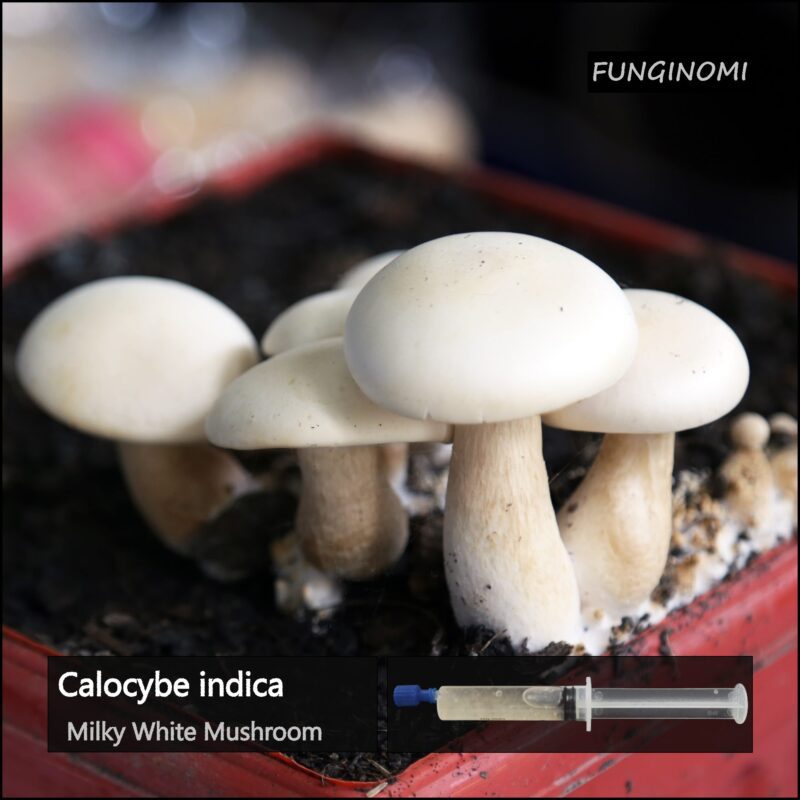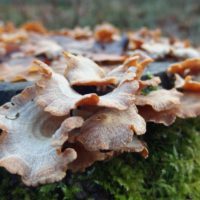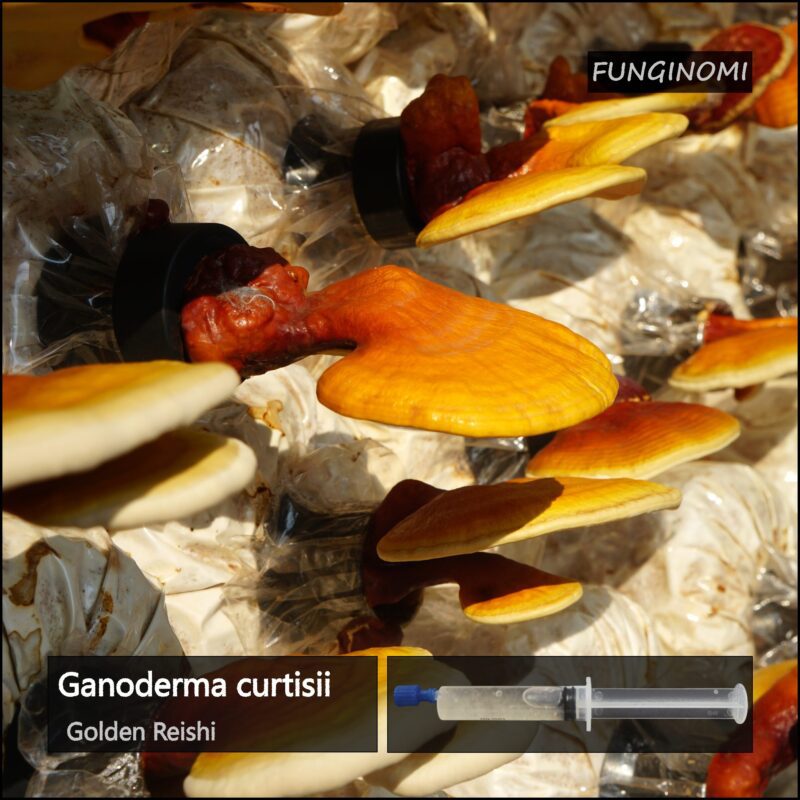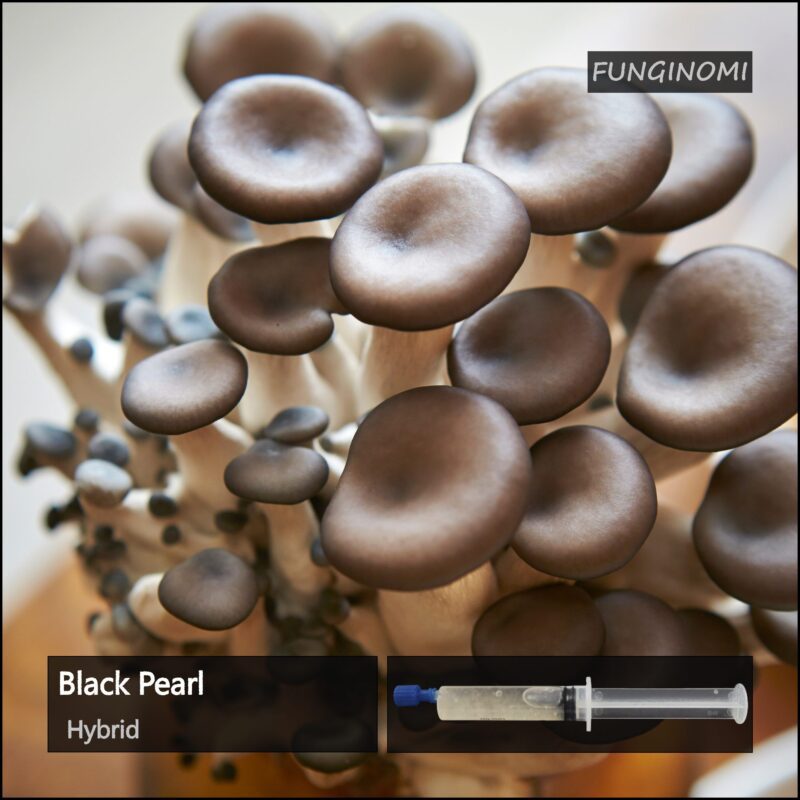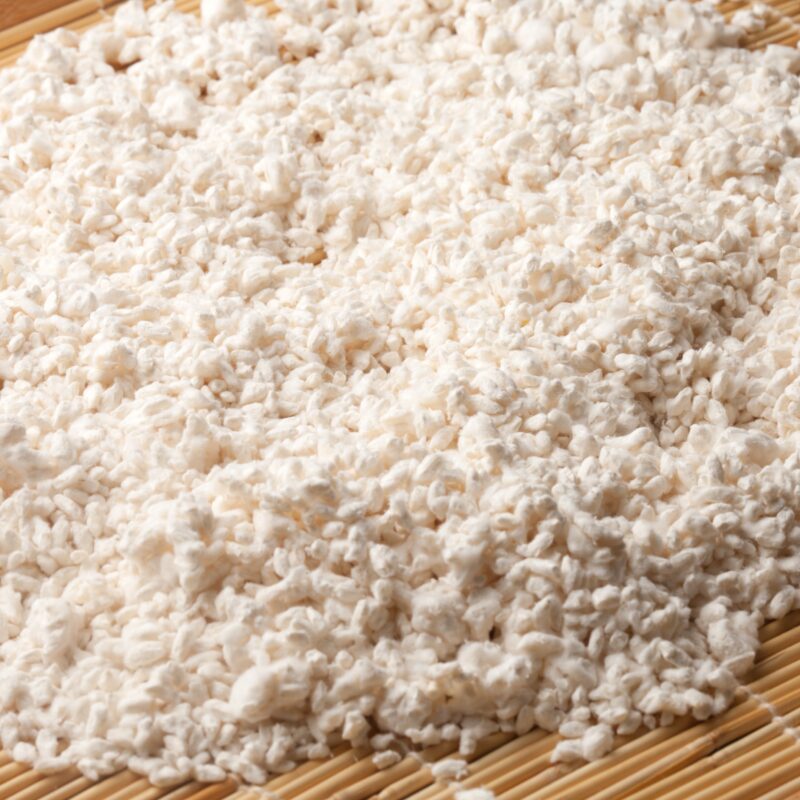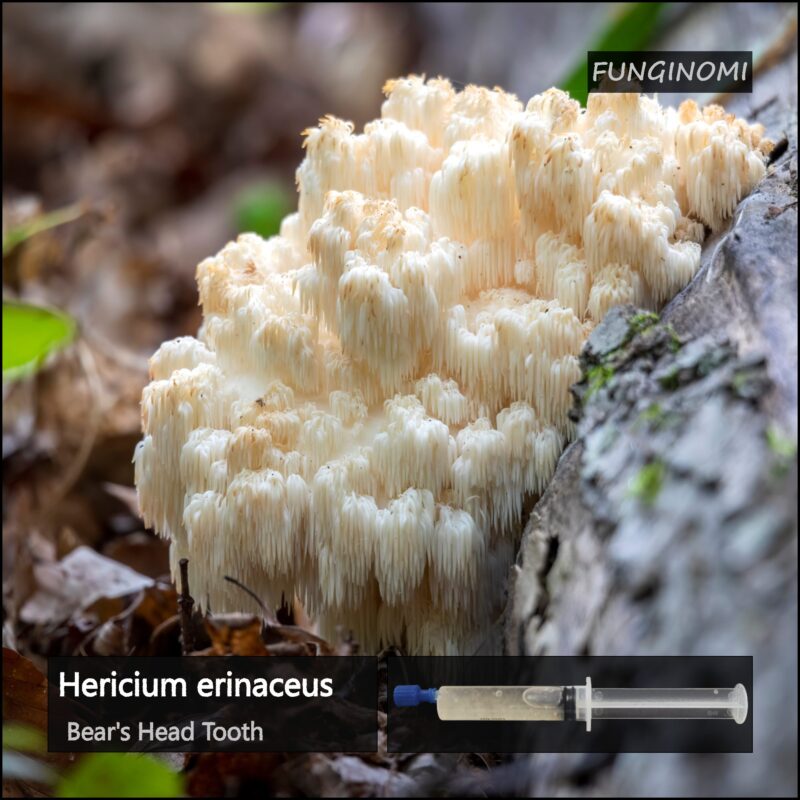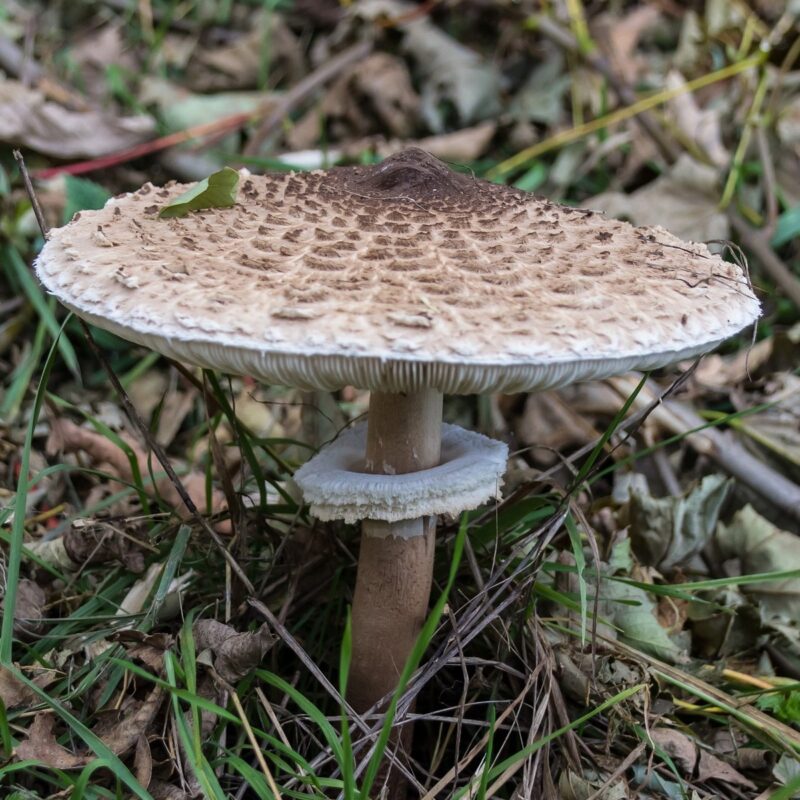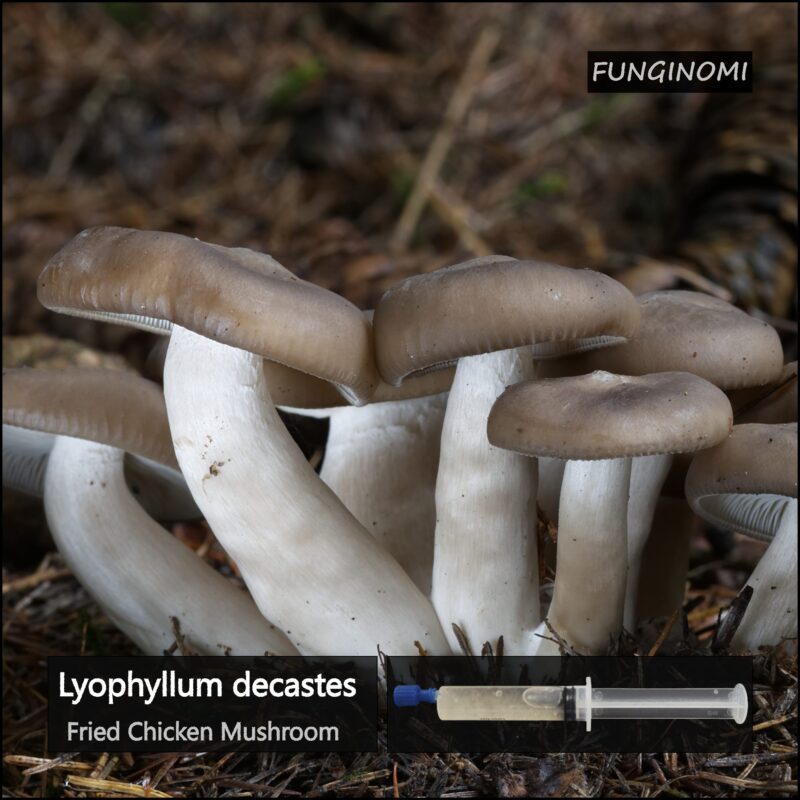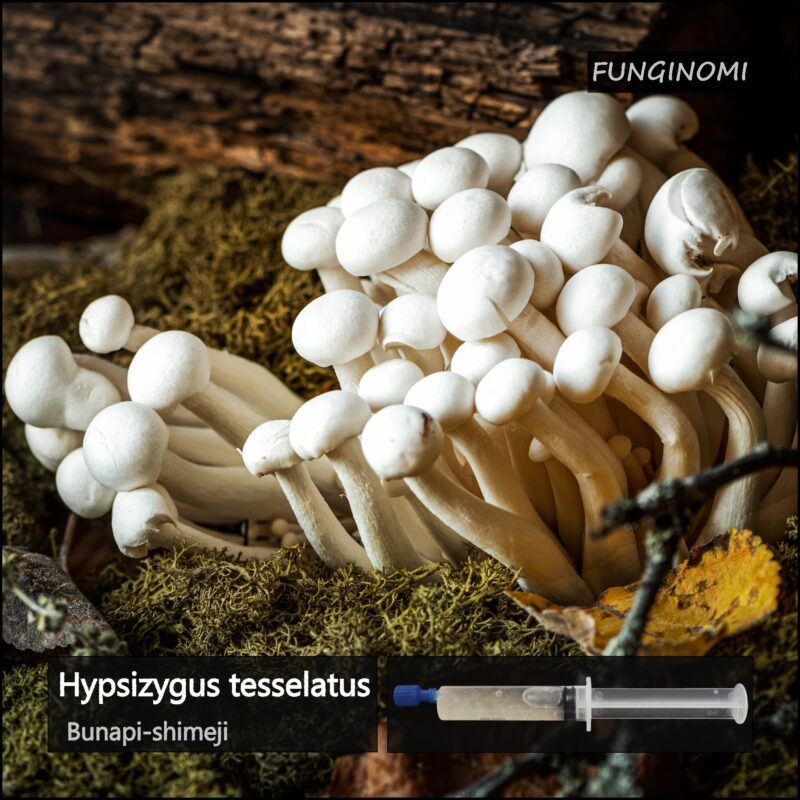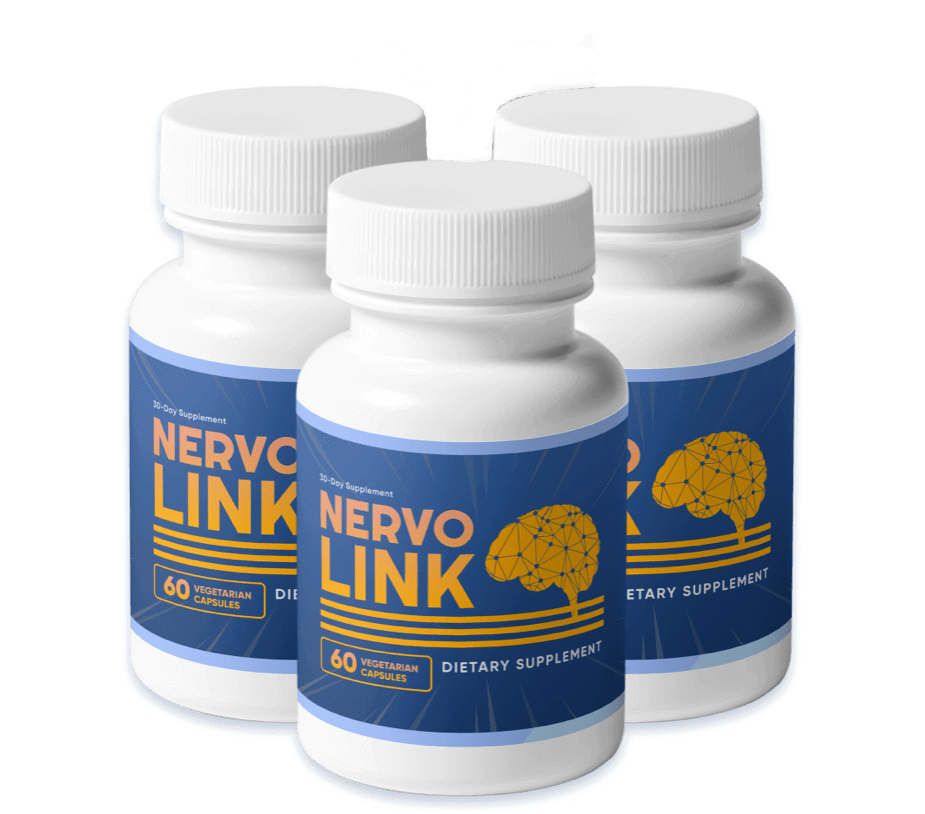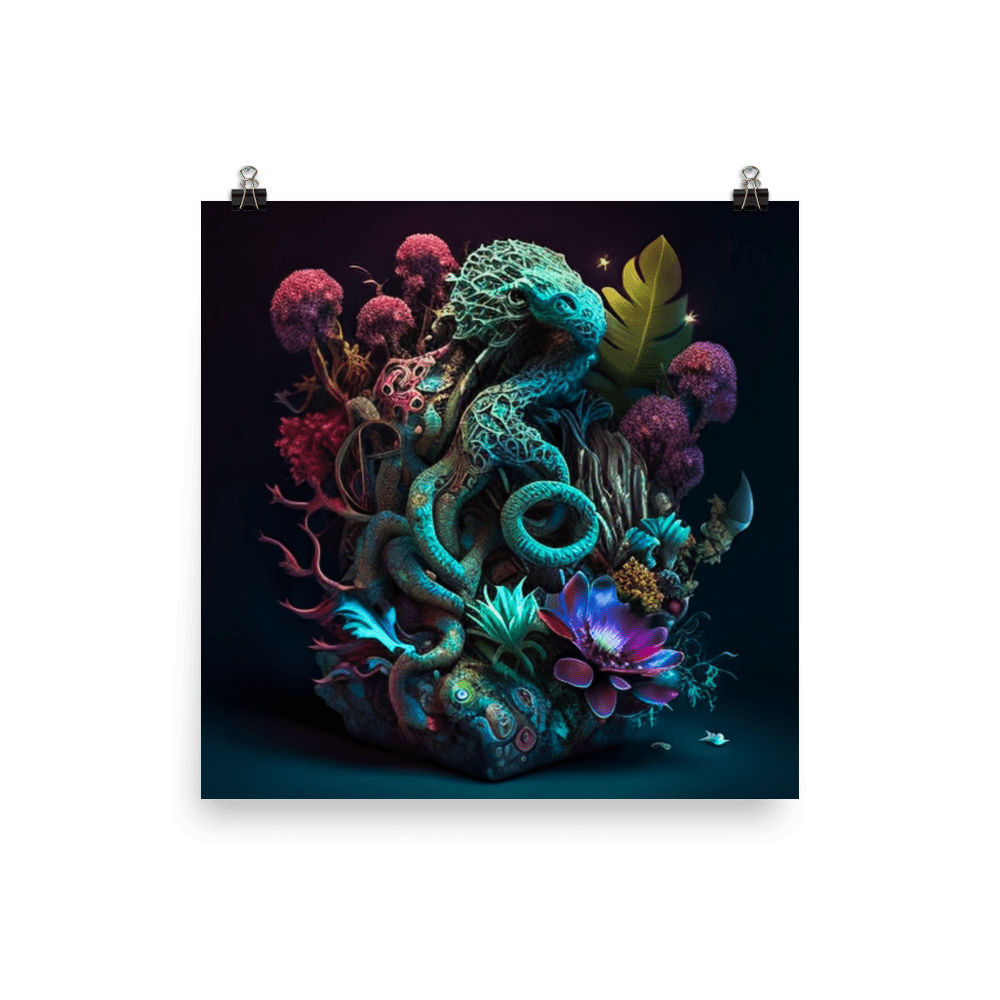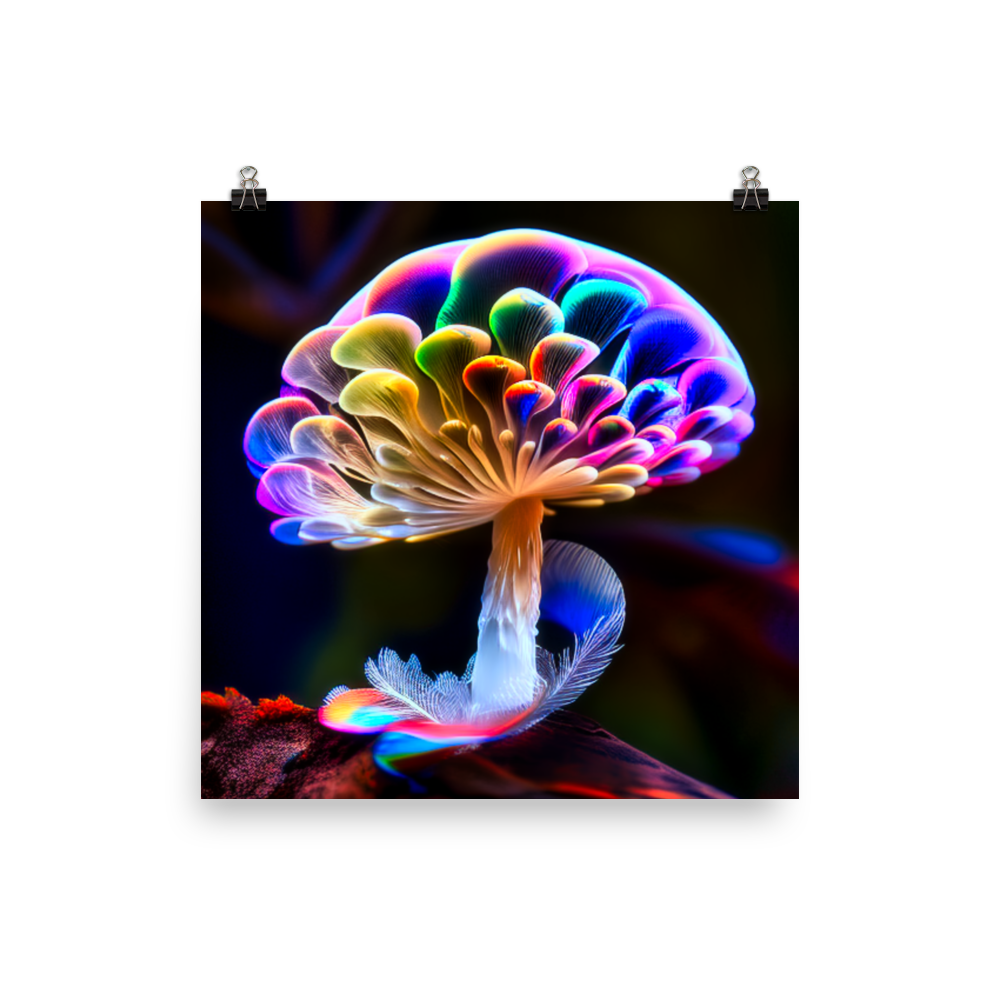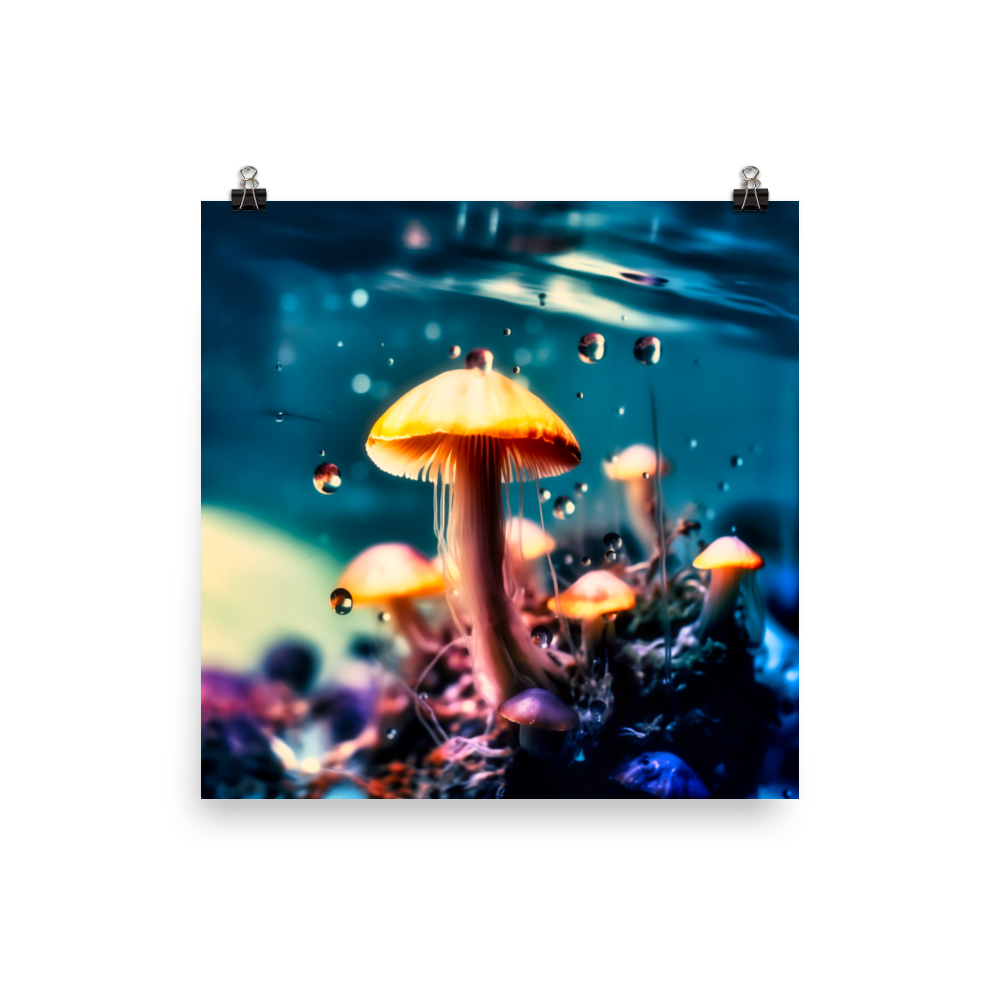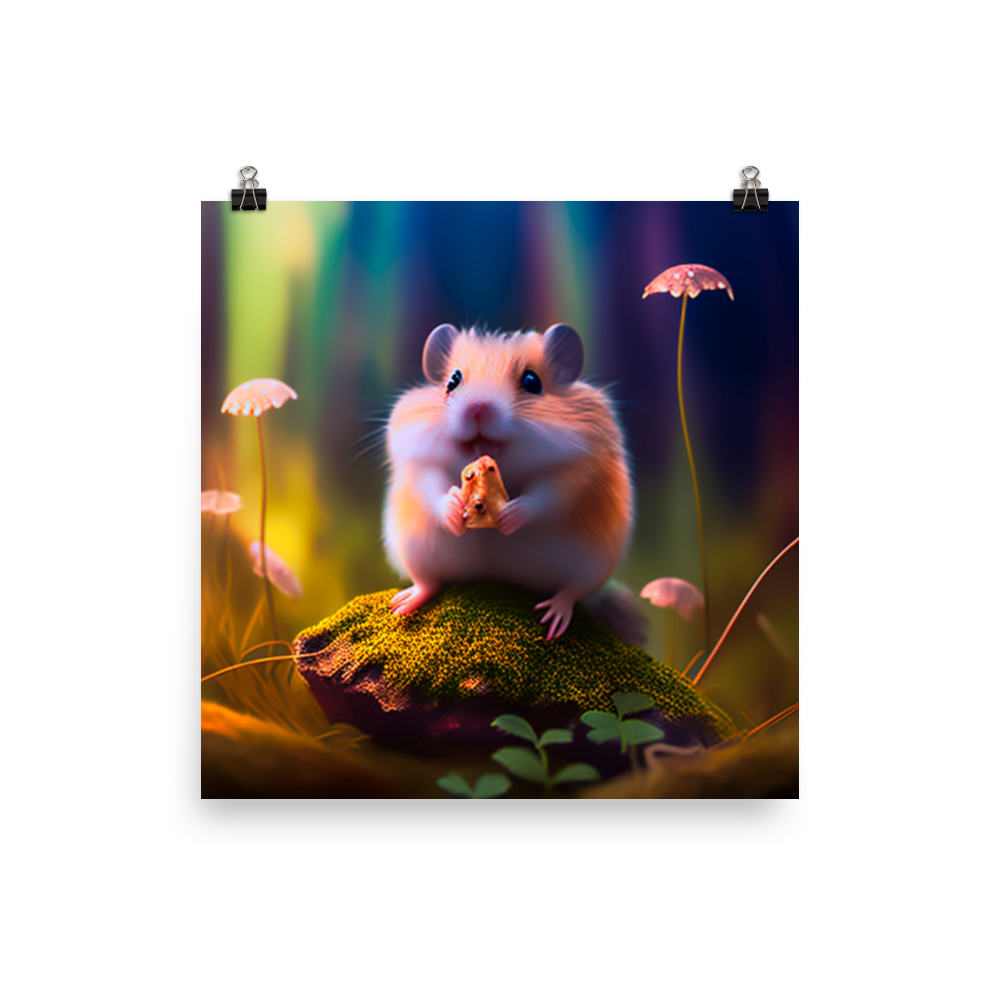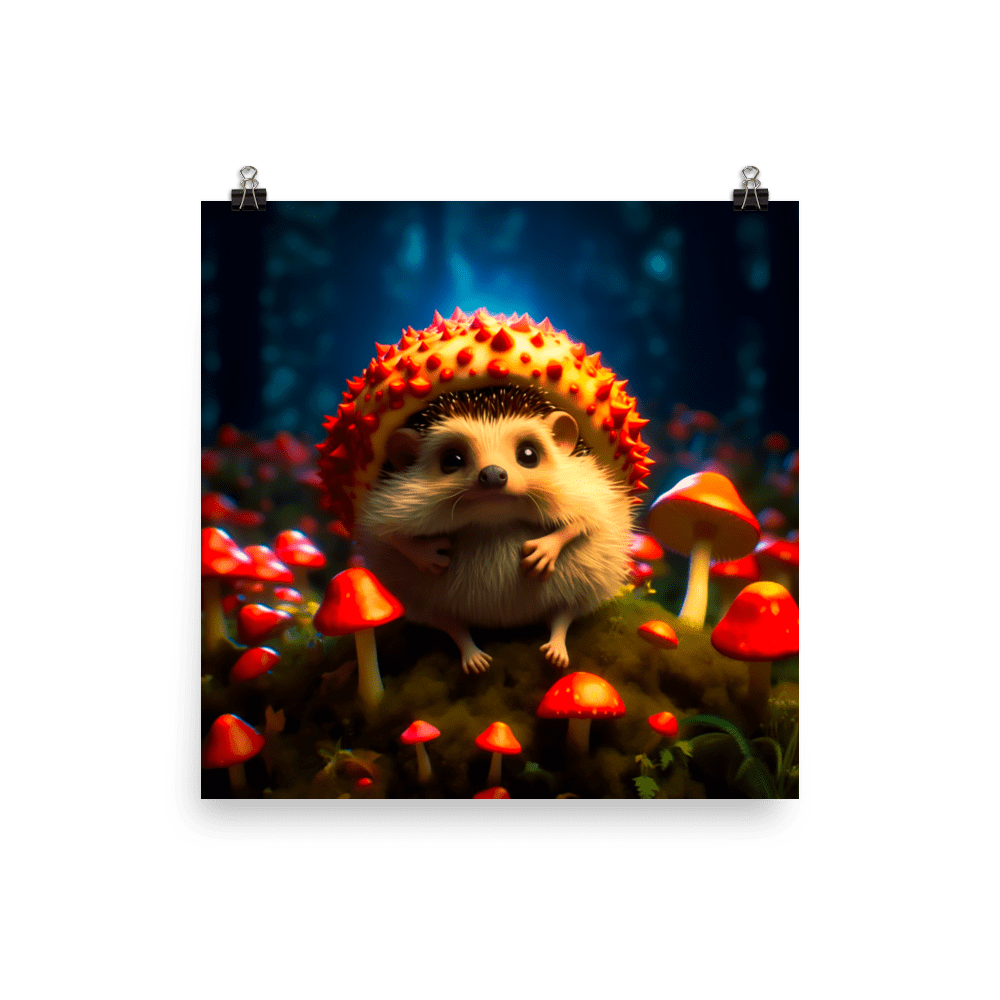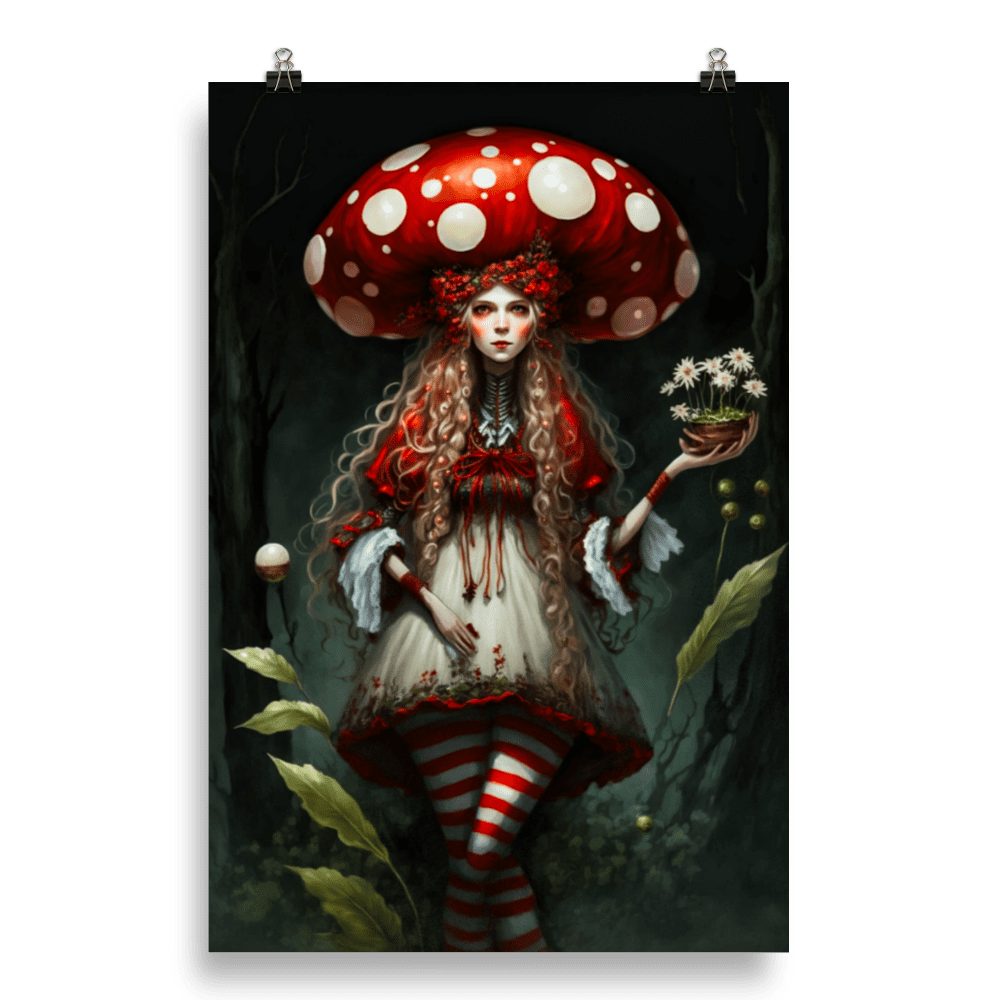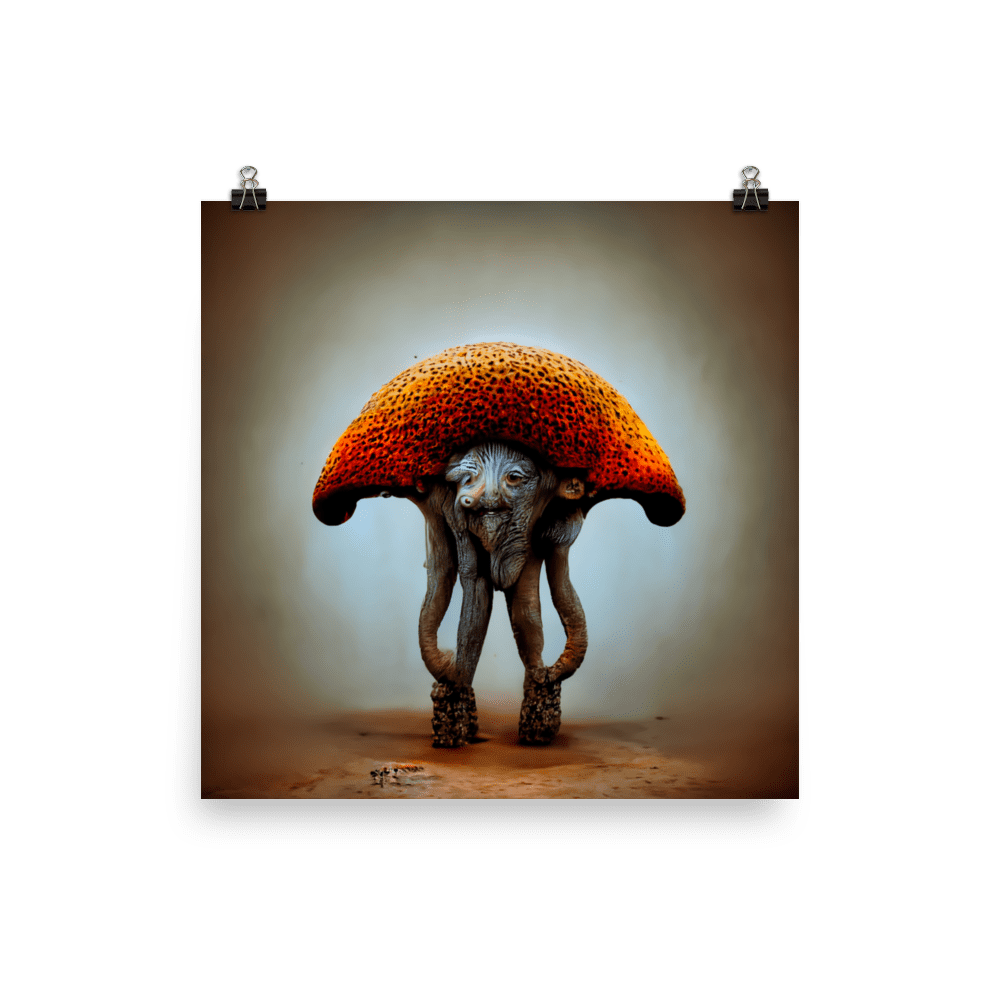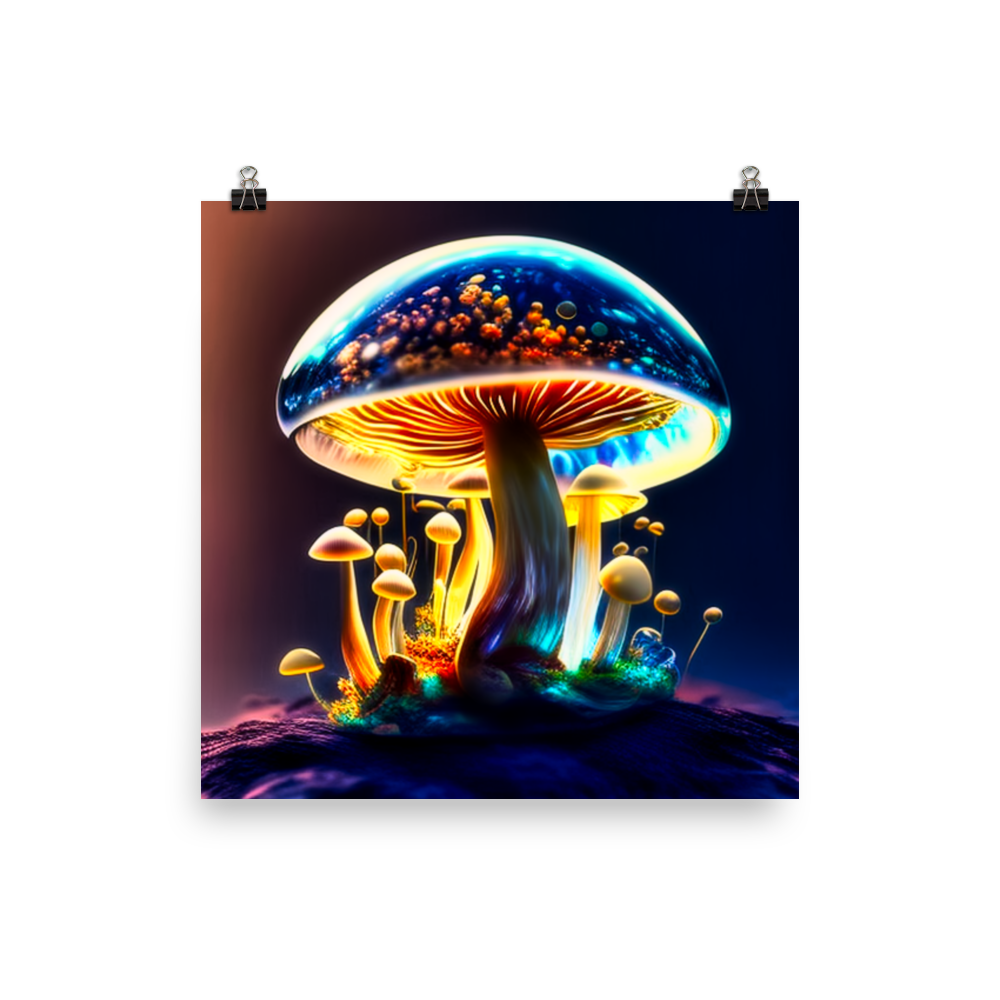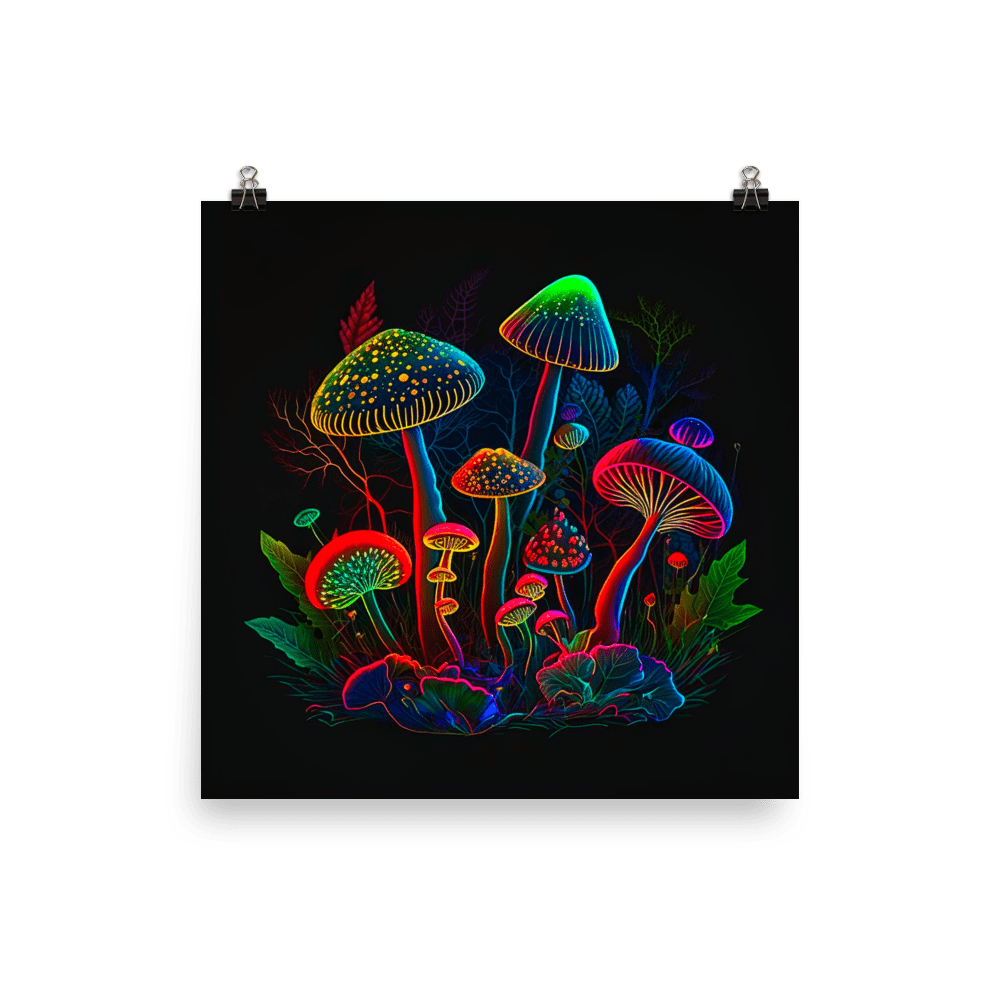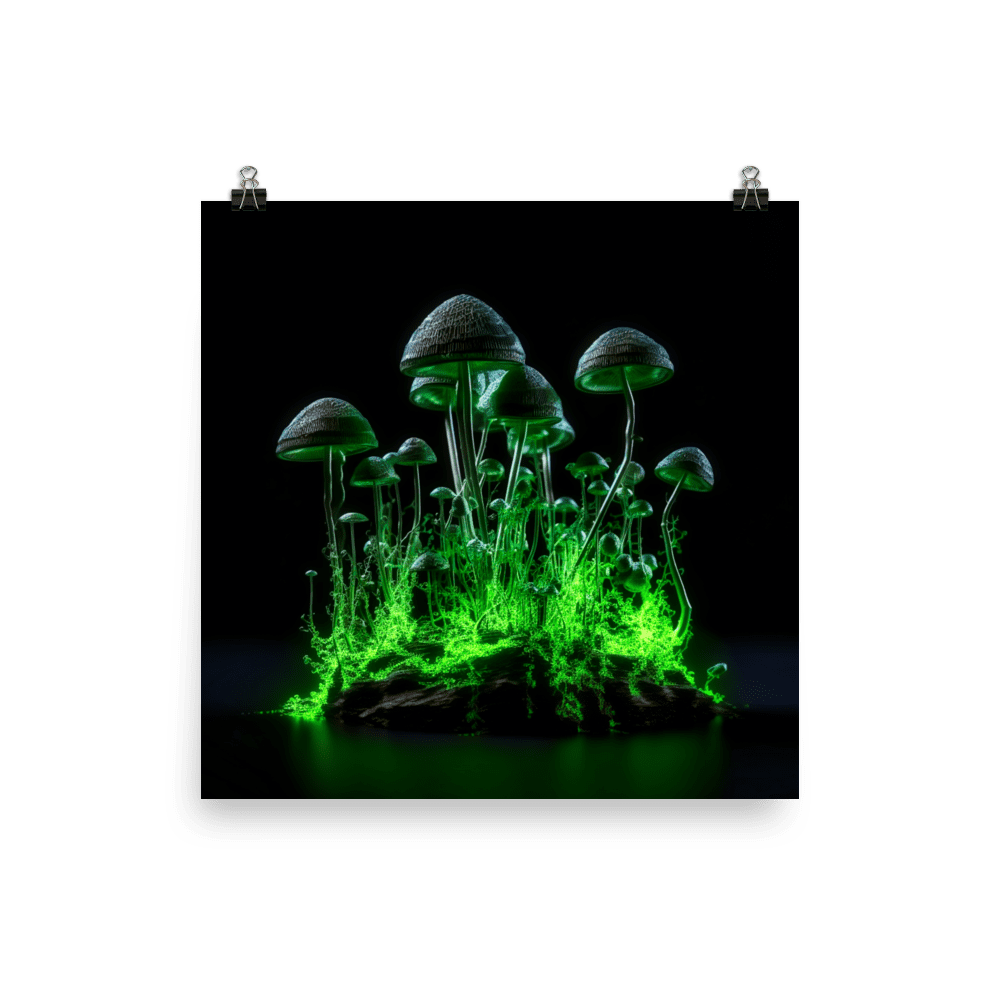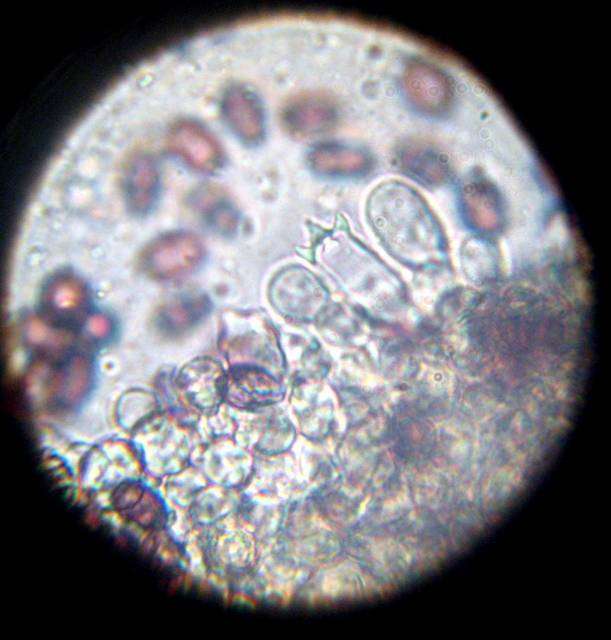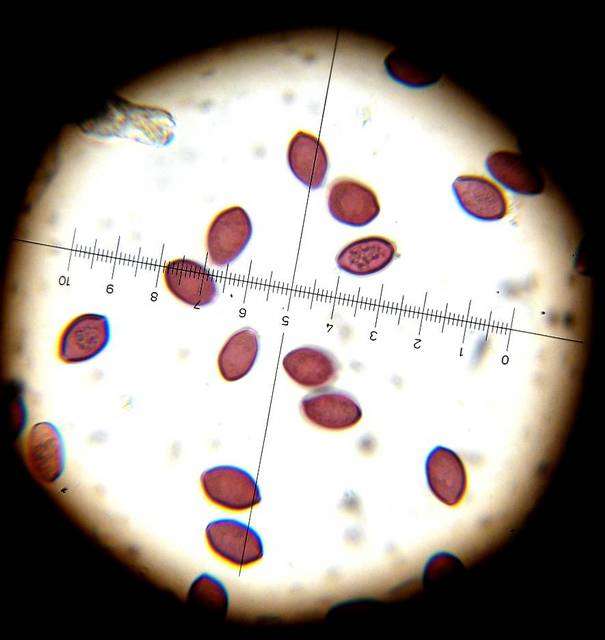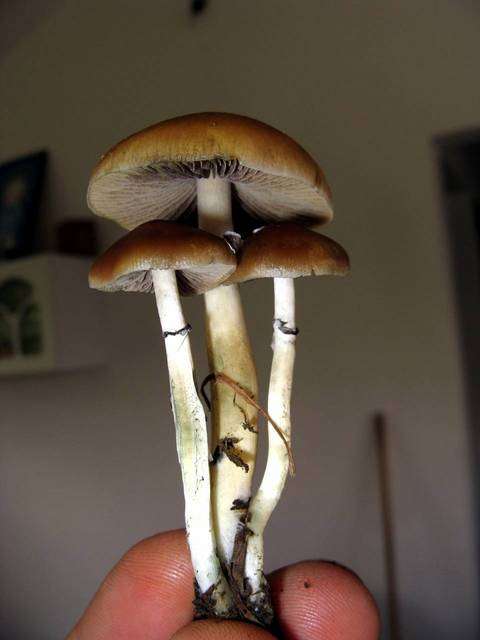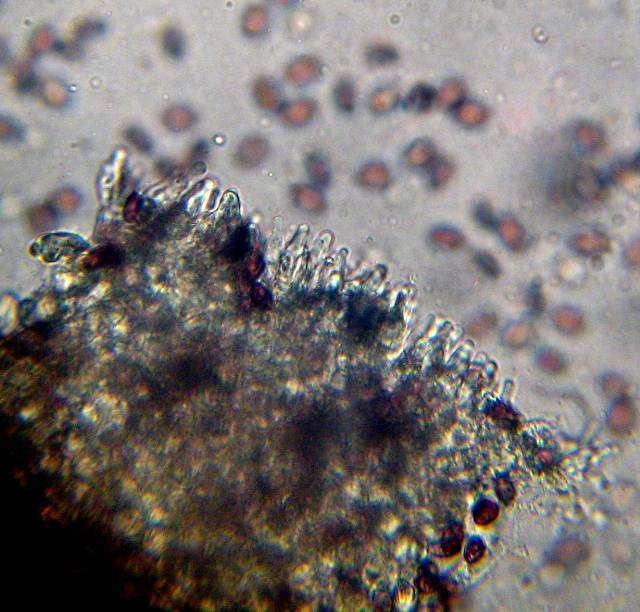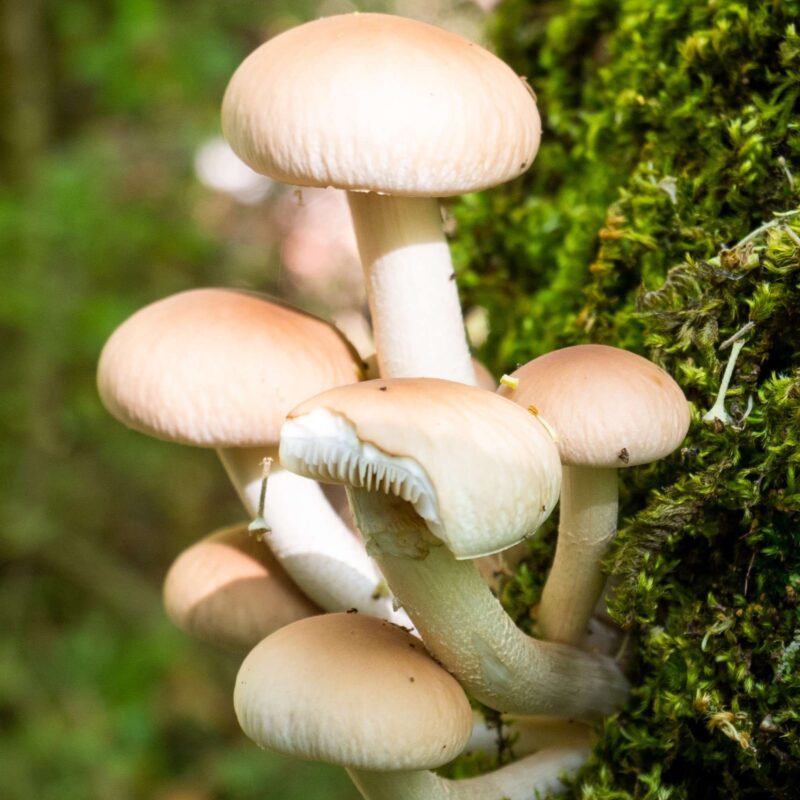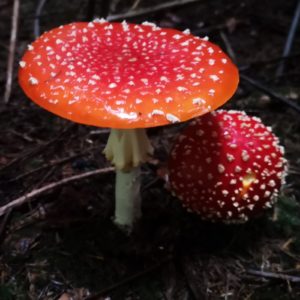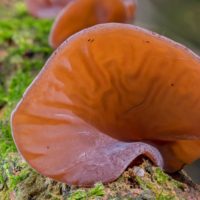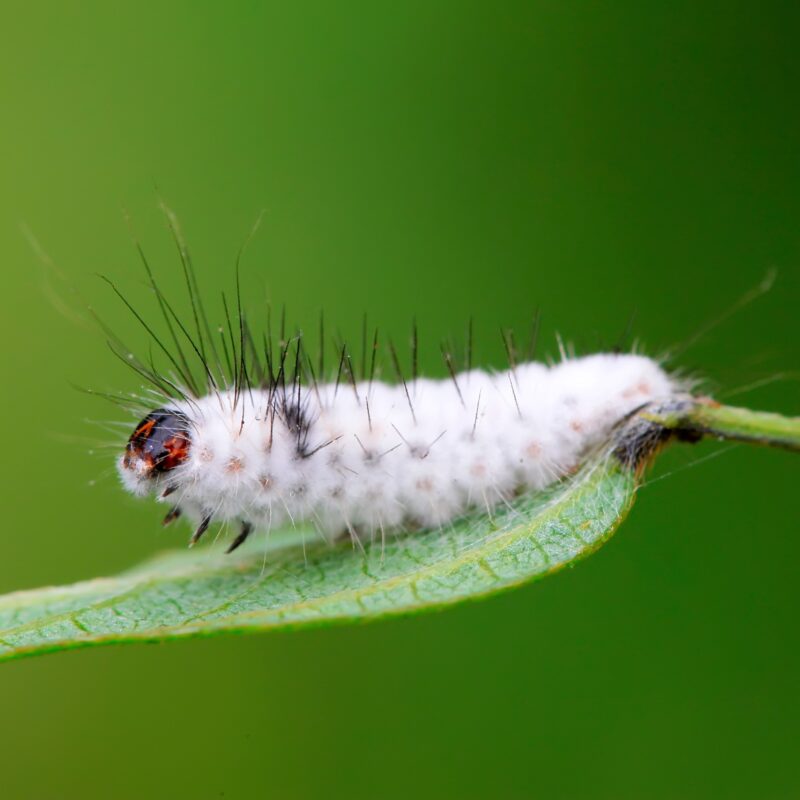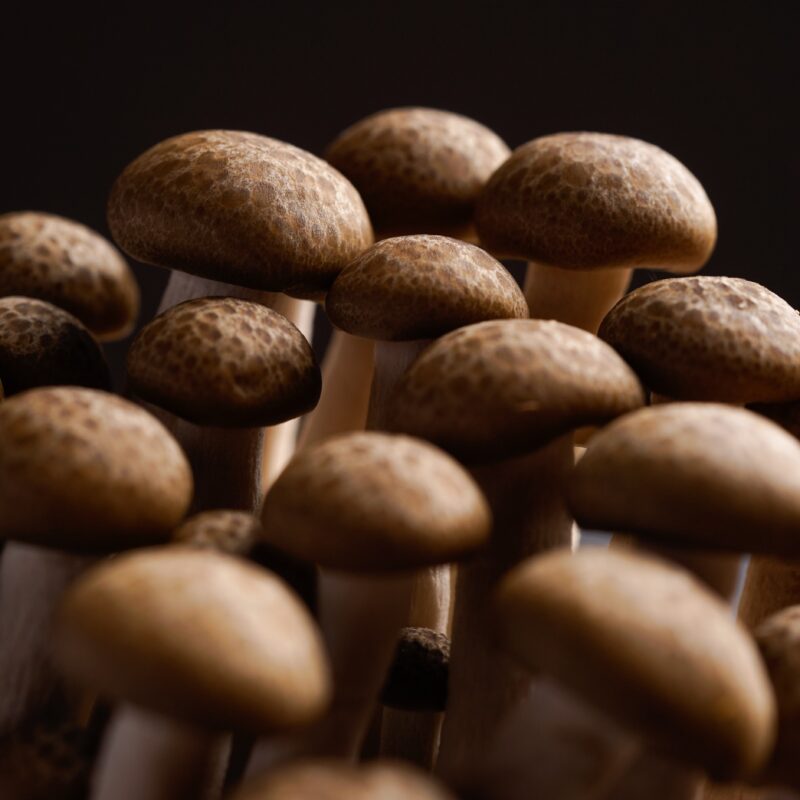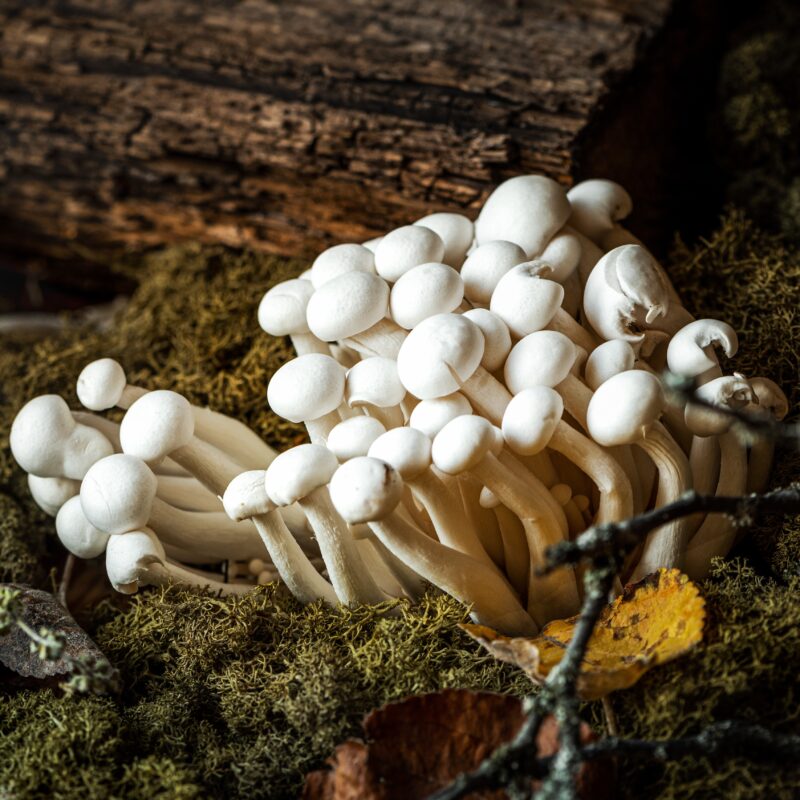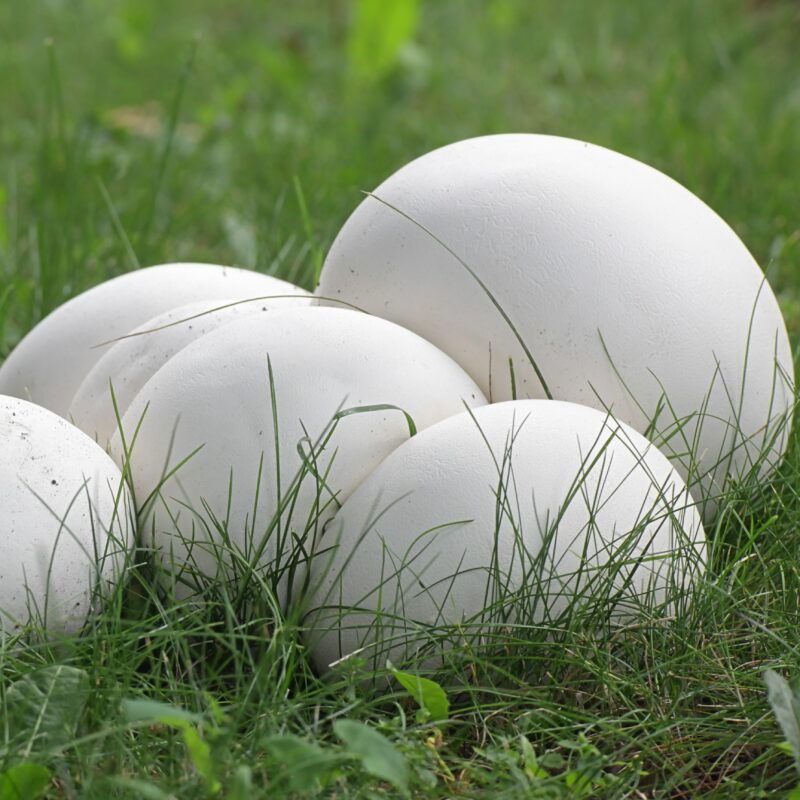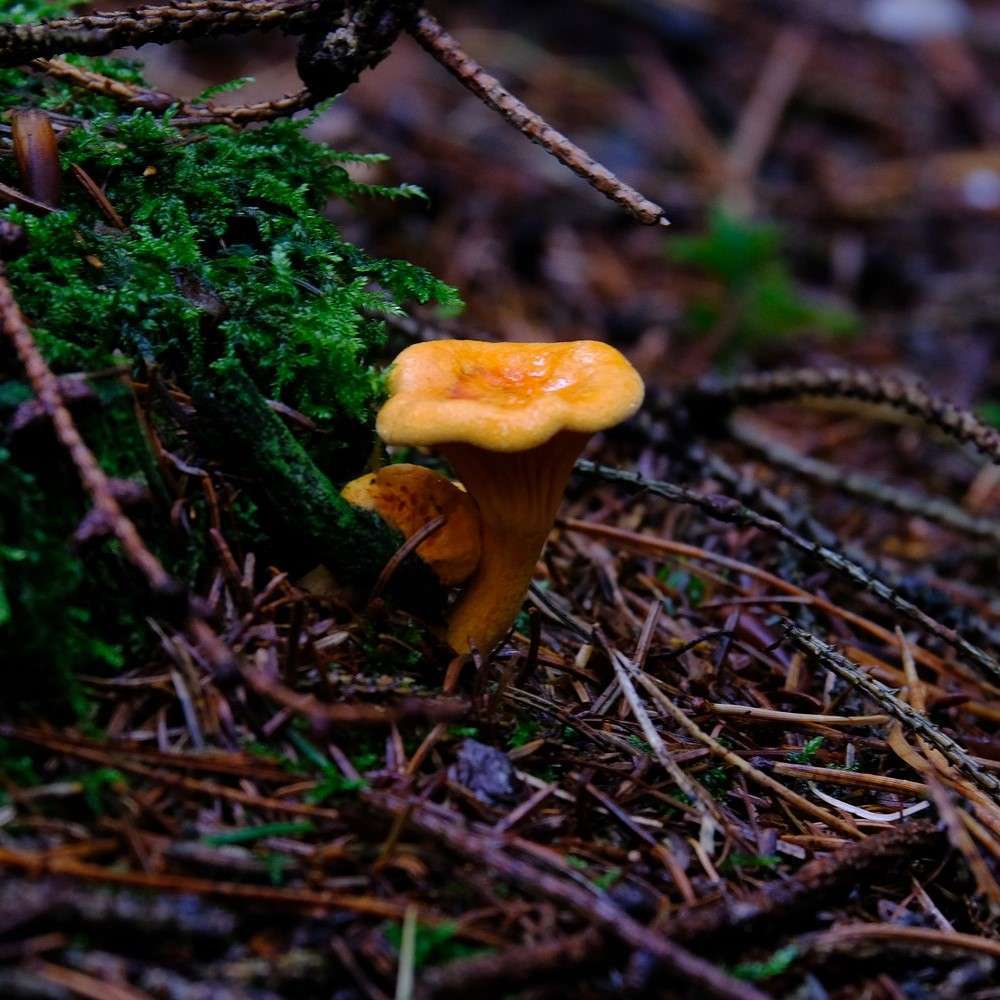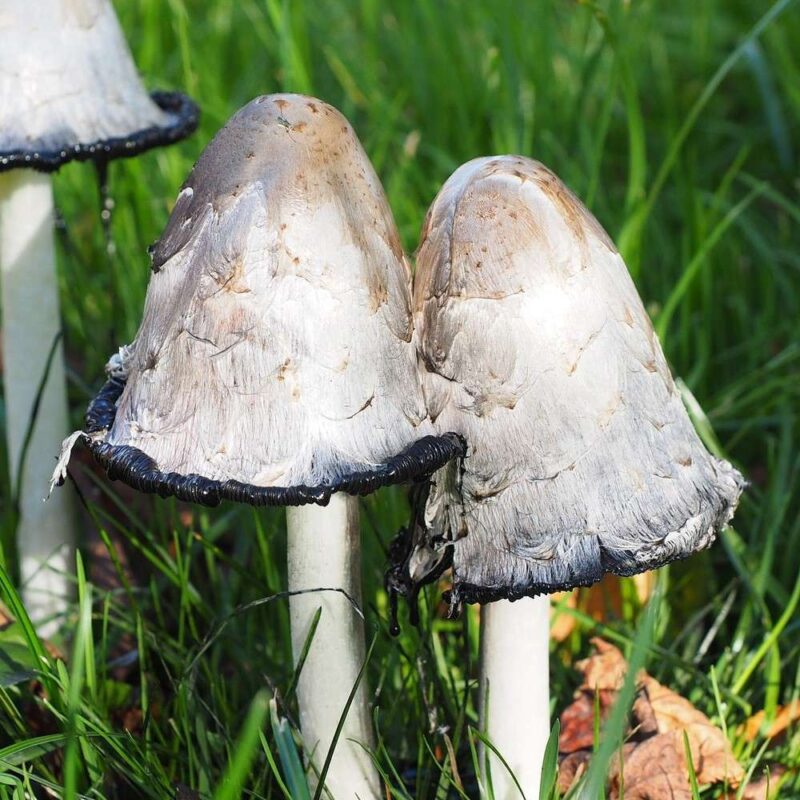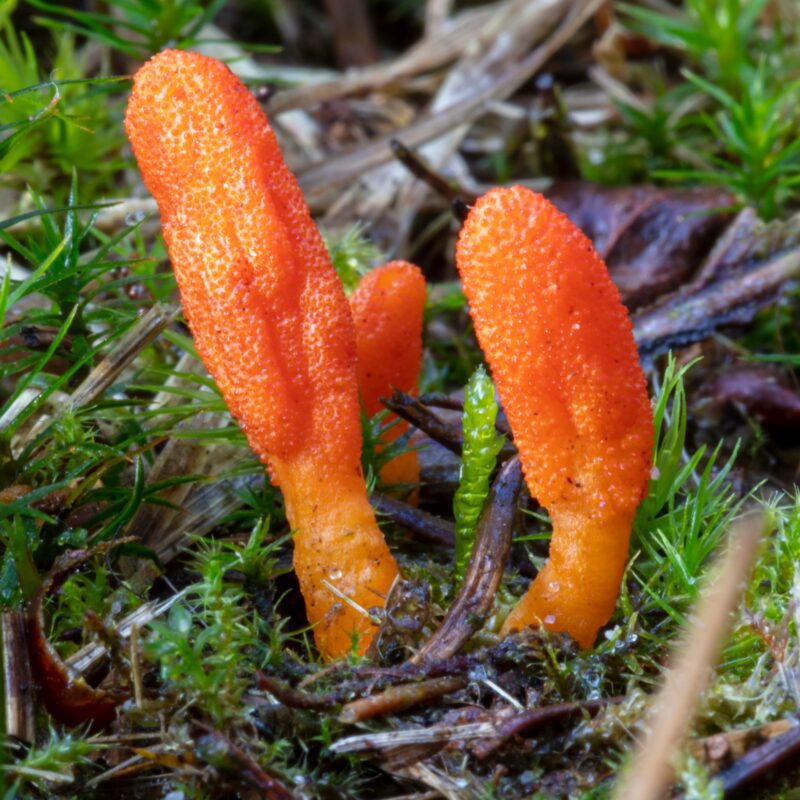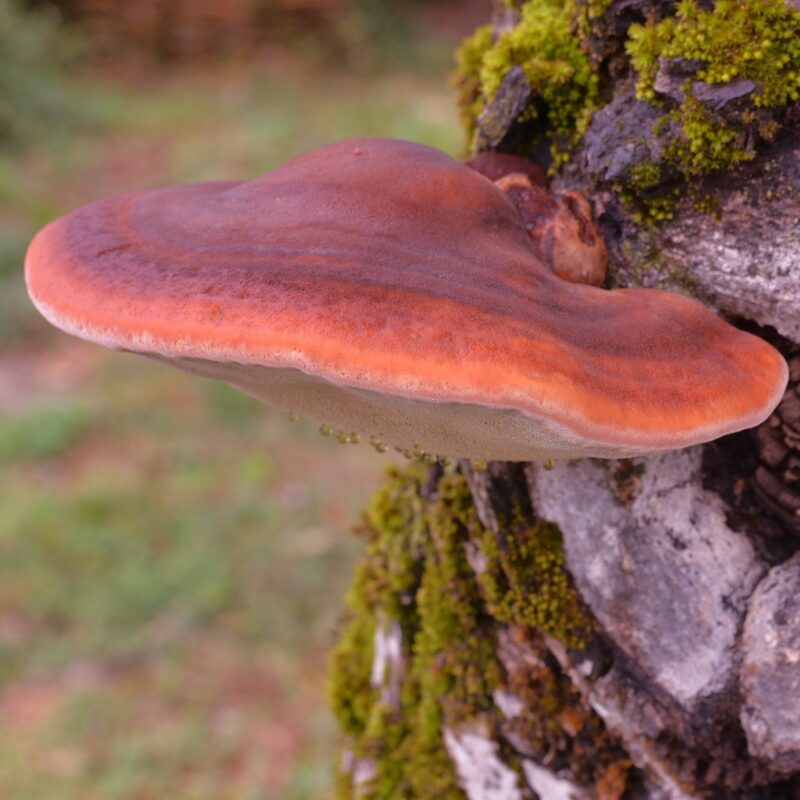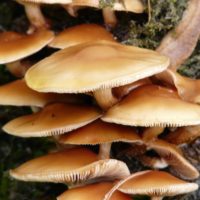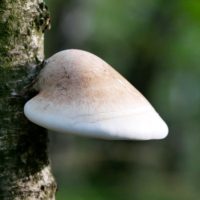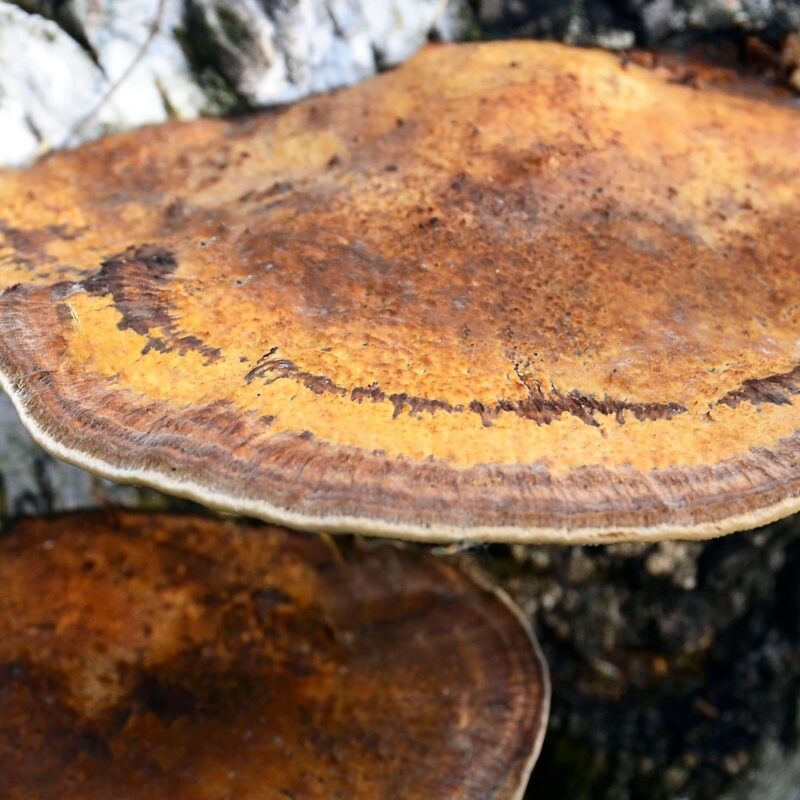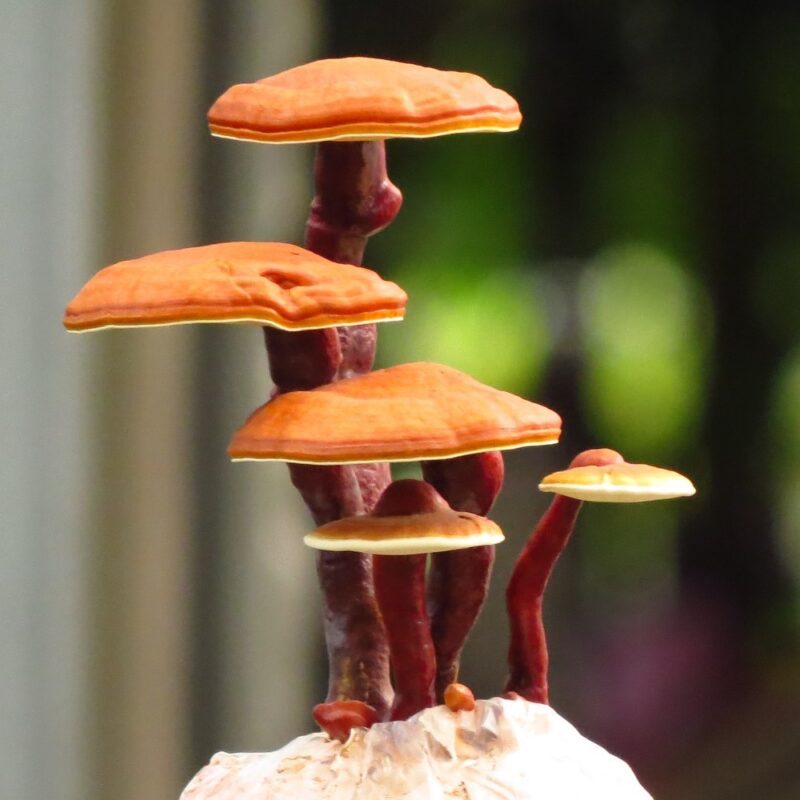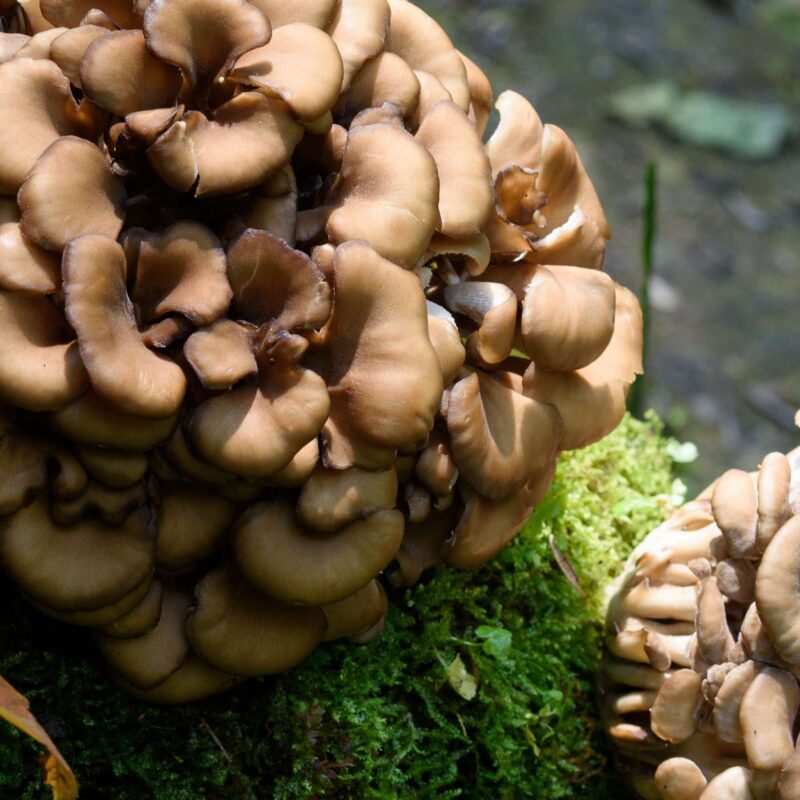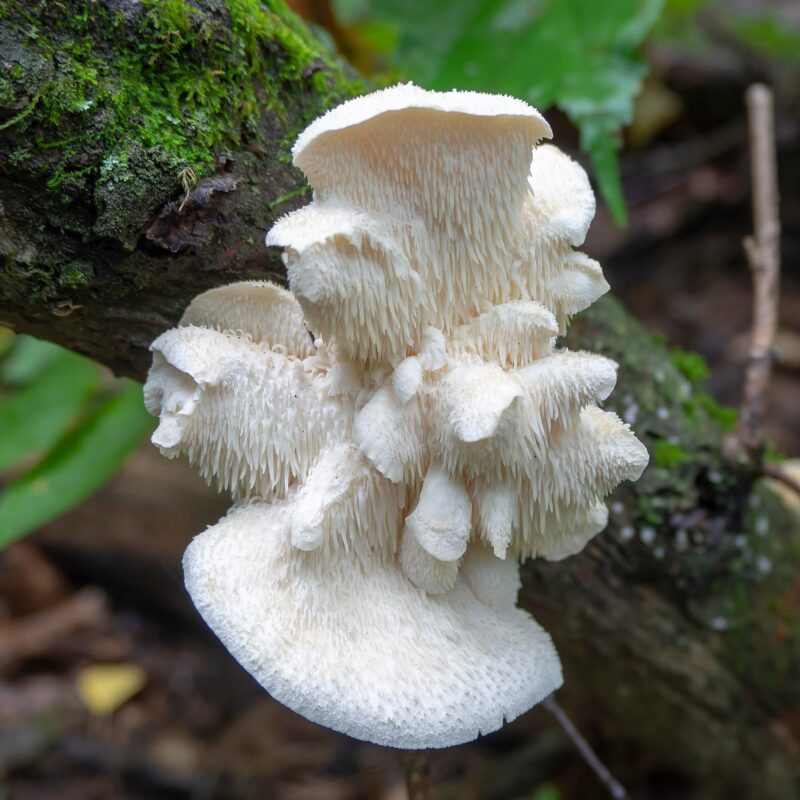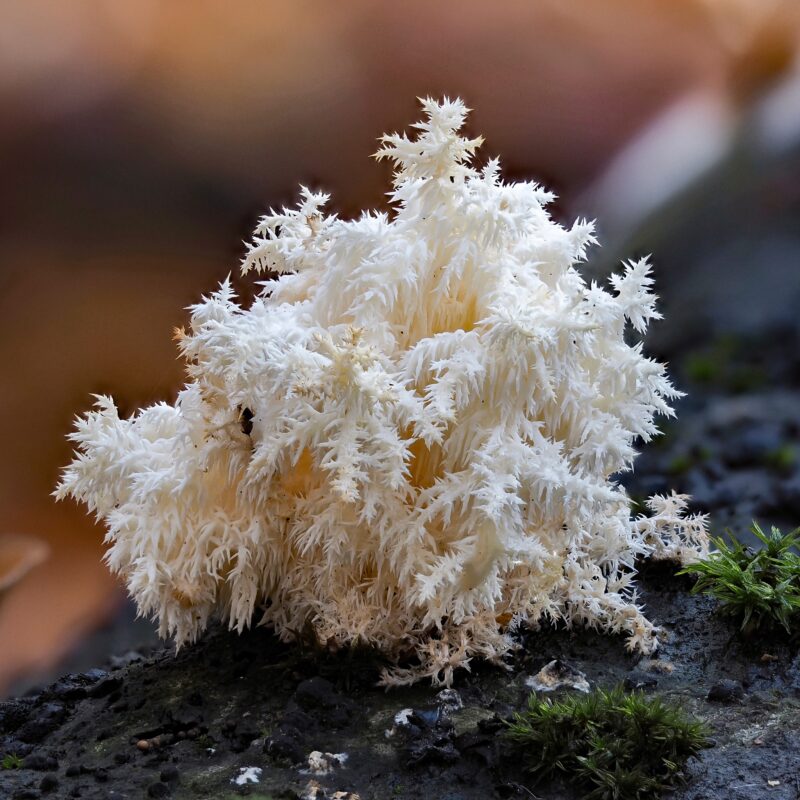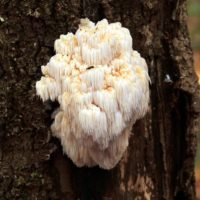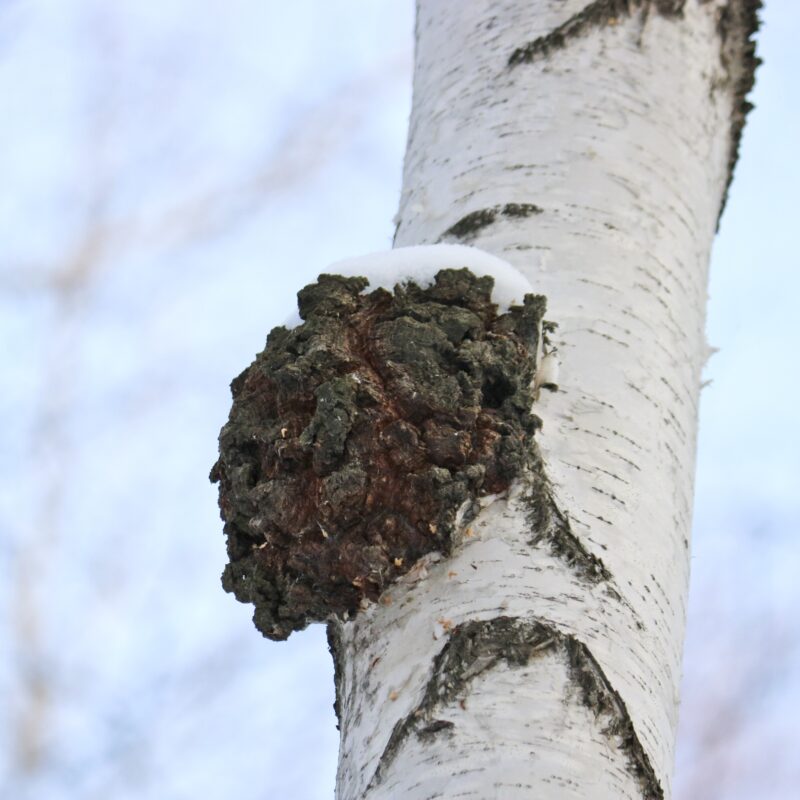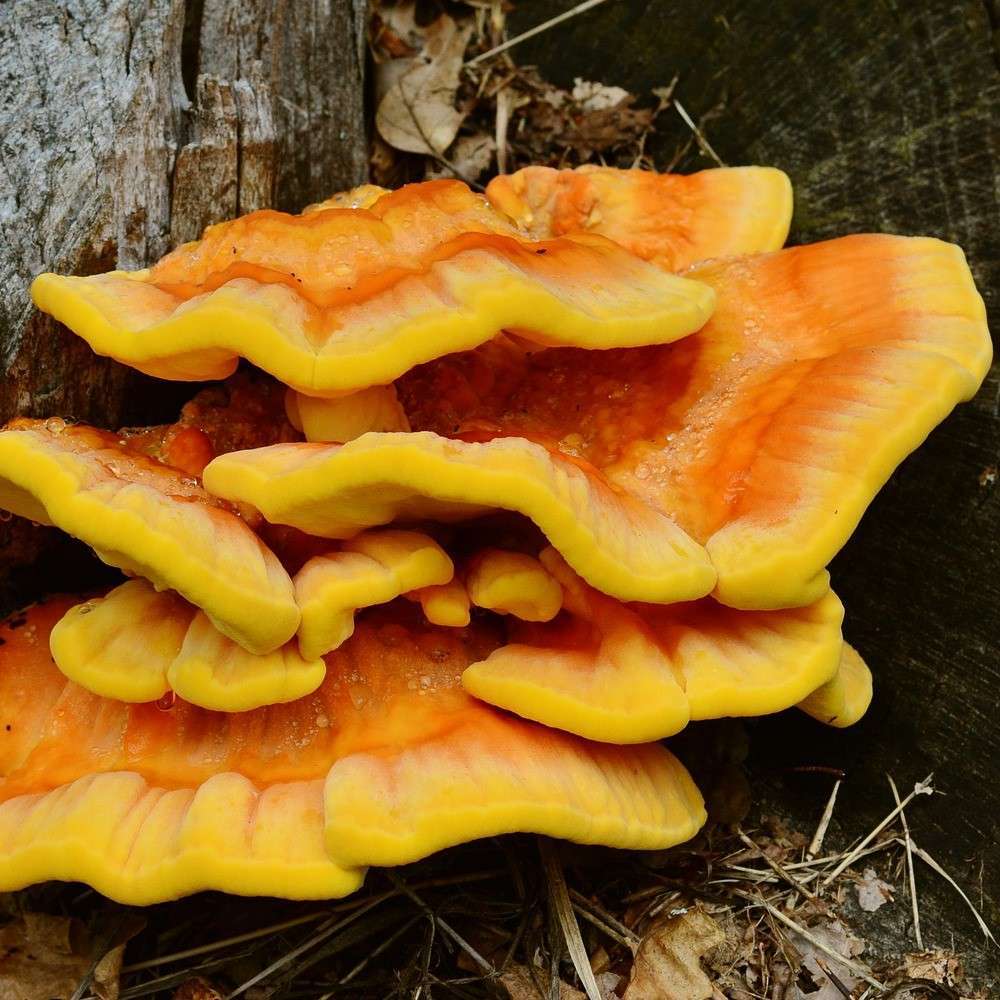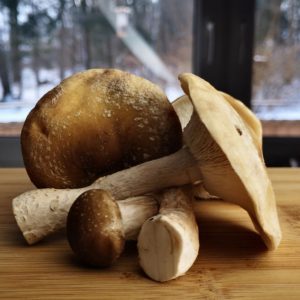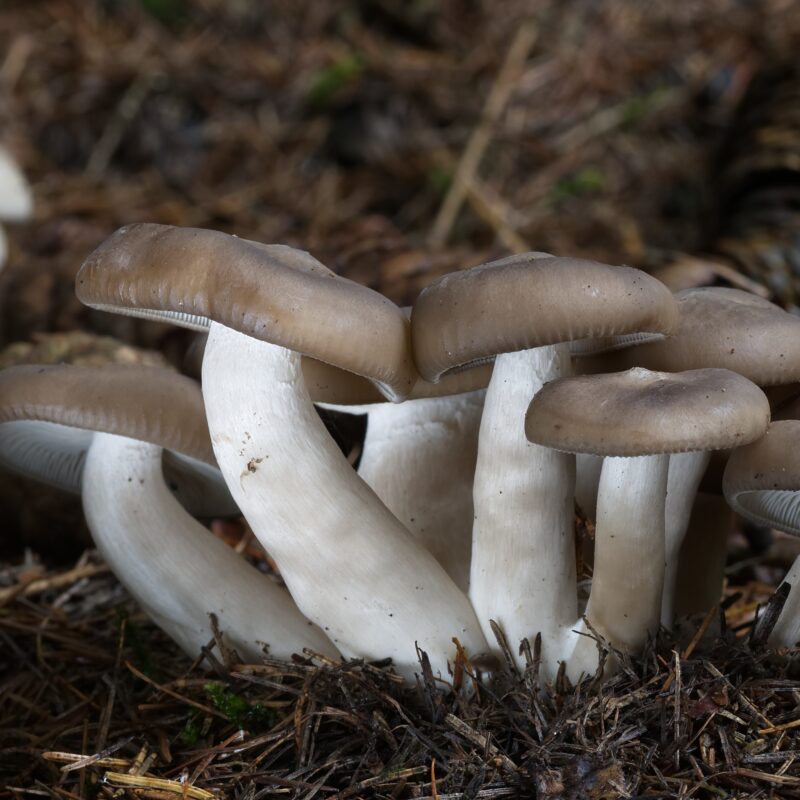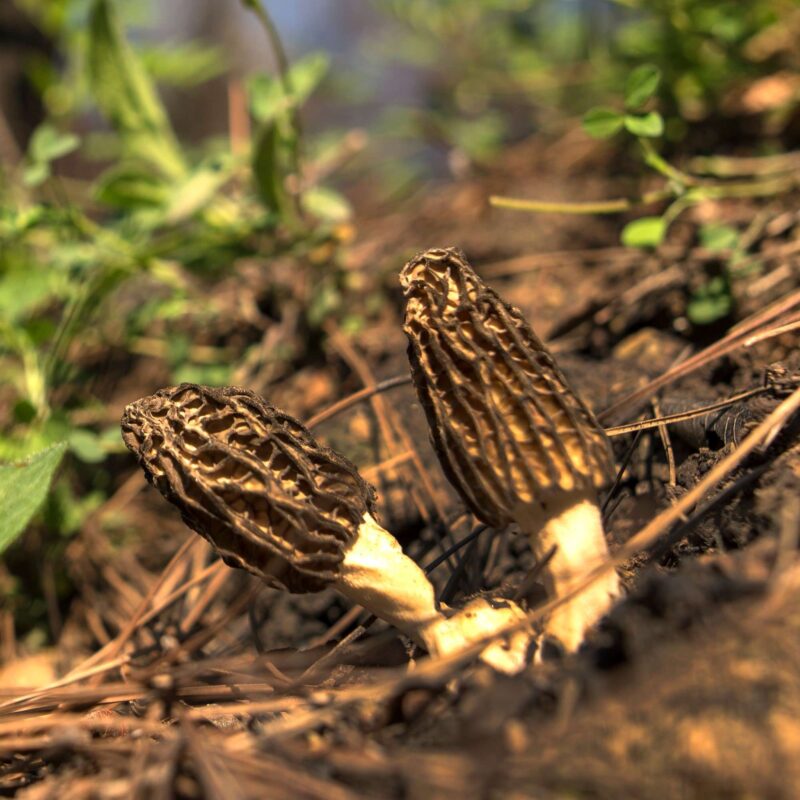Description
Properties
Psilocybe cubensis belongs to the ‘sacred’ Teonanakatl mushrooms of Mexico. This fungus is known as Hongo de San Isidra in the Mexican state of Oaxaca. It’s a major hallucinogen there. However, not all shamans use it there. The shamans of the Lacandones sacrifice Cubes and Panaeolus subbalteatus their gods, but there are no reports that they ingested the mushrooms.
You are warned against a tasting Psilocybe cubensis. Differentiation of this species is often very difficult and is usually only possible with certainty under the microscope. The cubensis were traditionally used and cultivated by shamans and marketed as medicines.
Ca. 9000-7000 BC: There is an ancient stone carving from the Tassili Plains in present-day Algeria, showing people walking with mushrooms on their hands. It must be remembered that at that time, this area, which is located in what is now the Sahara, was green and fertile. The medicinal and intoxicating properties are described in an Aztec text.
Traditionally used by shamans for its psychedelic effects, B+ is also cultivated and used as a drug. Although it is illegal in many countries to possess psilocybin-containing mushrooms or mycelium (both of which contain psychoactive substances), it is legal in many places to possess and sell spores.
———————————————————
Nanacatl – they are called Teonanacatl, meat of the gods
They grow in the plains, in the grass
The head is small and round, the stem long and thin
It is bitter and itches, it burns the throat
It makes one silly, it confuses you, it anguishes you, it is a remedy for fever, for gout
You only eat two or three
It makes you sad, depresses, anguish, it lets you run away, it scares you
– it lets you hide
The one who eats many of them, sees many things that they frighten and cheer him up
He runs away, hangs himself, throws himself off a rock, screams, gets scared
– he eat them with honey
To someone who is arrogant, is daring, is vain
Psilocybe cubensis has a strong hallucinogenic effect. The psilocybin content can reach almost 0.5-0.9% of the dry matter.
The main psychoactive compounds in Psilocybe cubensis are psilocybin and psilocin. These compounds are classified as tryptamines and are responsible for the hallucinogenic effects of the mushroom. Psilocybin is converted to psilocin in the body and acts on serotonin receptors in the brain, producing alterations in perception, cognition, and mood.
But their consumption carries potential risks and should be approached with caution. It is advisable to consult with experts and follow legal regulations if you are considering engaging with these mushrooms.
Like a wise and ancient sage, these mushrooms guide us through the labyrinthine corridors of our subconscious, unveiling hidden truths, healing emotional wounds, and sparking profound spiritual growth. As the boundaries of the self dissolve, a deep sense of interconnectedness and empathy for all living beings is kindled, transforming the journey into a sacred pilgrimage of self-discovery.
Treat these sacred allies with the respect they deserve, and they shall reveal the secrets of the universe, transforming your perception and leaving an indelible mark on your soul.
———————————————————
It will make them humble
It is the food of the gods – it is the drink of the gods
To someone who is angry, it will make them laugh
To someone who is sad, it will make them smile
You should not eat to many, you should not drink to much.
It is a strong medicine, it is a powerful drug
It makes him humble
It takes away his daring, it shows him his faults
They give him a calm heart, make him feel happy and contented
The one who eats many of them sees visions, the one who eats few falls asleep
It is the plant of life, it is the flower of death
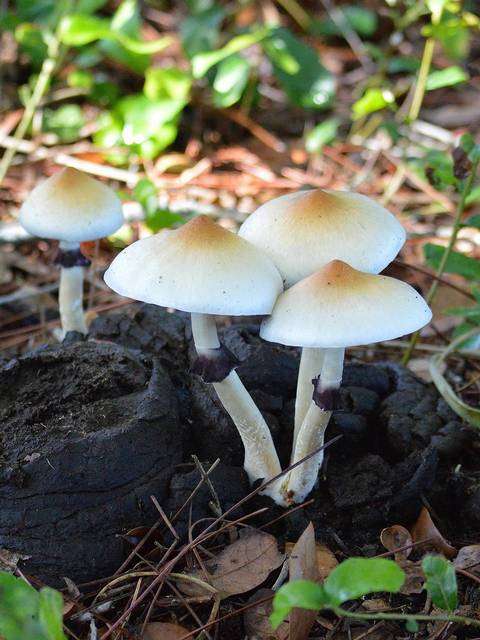
© Benjamin Dion (benjamindion)
1. Growing
Growing Procedure
The PF Tek method is a popular and effective technique for growing Psilocybe cubensis mushrooms at home. It offers a simple and accessible way for beginners to cultivate their own magic mushrooms. The method involves using sterilized substrates such as brown rice flour, vermiculite, and water, combined with spores of mushroom mycelium. By following the steps below, you can successfully grow your own psychedelic fungi.
Vermiculite is another essential component of the PF Tek. This naturally occurring material has excellent absorbent qualities, allowing water, air, and nutrients to penetrate the substrate effectively. It can be purchased separately, and you’ll need it for the next steps.
To begin, you’ll prepare the jars for the BRF cake mixture. Use wide-mouth mason jars, which make it easier to remove the fully colonized cakes later. Modified lids with filters and injection ports are necessary to ensure fresh air exchange and minimize contamination risks.
Next, prepare the BRF cake mixture by combining two parts vermiculite, one part brown rice flour, and one part water. Gradually add the water to achieve the right moisture content, referred to as “field capacity.” The substrate should clump together when squeezed without excess water dripping from it. Proper moisture content is crucial for successful colonization.
Fill each jar with the BRF cake mixture, leaving some space at the top. It’s optional but recommended to add a shallow layer of dry vermiculite on top of the mixture for extra protection against contamination. Seal the jars with lids and cover them with aluminum foil, ensuring a tight seal around the rim.
Now it’s time to sterilize the jars. Place them in a pressure cooker, ensuring the water level is no higher than halfway up the jars. Sterilize for at least 90 minutes at 15 PSI. Allow the pressure cooker to depressurize and cool completely before opening.
Once the jars have cooled down, you can inoculate them with liquid culture or spore syringe using aseptic technique. It’s essential to work in a clean environment, preferably using a flow hood. If unavailable, choose an enclosed space with minimal airflow, such as a bathroom. Inject a few CCs of the chosen culture into each jar’s four holes in the lid, cover the holes with micropore tape, and sterilize the syringe between each jar.
After inoculation, the jars need time to fully colonize. This process can take around 2-4 weeks, depending on various factors such as mushroom type and environmental conditions.
Once the BRF cakes are fully colonized, they can be birthed from the jars and placed into a fruiting chamber. Dunking the cakes in clean water for up to 24 hours and rolling them in clean vermiculite can help rehydrate them.
Maintain proper humidity levels in the fruiting chamber using methods like a mini-greenhouse, spraying the walls, or using a humidifier. Within 3-14 days, the cakes will start forming primordia or pins, which will develop into mushrooms. Harvest the mature mushrooms carefully, leaving the cakes intact for future flushes.
The PF Tek method offers an estimated timeline of 4-8 weeks or more, from preparation to harvest, depending on various factors. Remember that these time frames are approximate and can vary.
Enjoy!
S
|
P
|
F
|
|
|---|---|---|---|
Temp °C |
23-27°C (73-81°F) | 21-24°C (70-75°F) | 21-24°C (70-75°F) |
Relative Humidity % |
95 | 95-100 | 85-95 |
Duration d |
10-14 days | 5-10 | 7-14 |
CO2 ppm |
>5000 | 1000-2000 | <1000 |
FAE per h |
0-1 | 4-6 | 4-8 |
Light lux |
– | 100-800 | 500-1000 |
Affiliate Partner
Growing
Agar Culture Media: MEA, MYPA, MYA, PDYA
Cropping Cycle:
Containers for fruiting:
Biological efficiencies:
Substrates:
Growing Characteristics
Animal dung, humus, subsequent decomposer, summer to late autumn, cultivated as a drug and offered in various stores
Natural Habitat
Spring to early fall
Psilocybe cubensis usually grows in horse and cow pastures on manure (dung) or on soil enriched with manure. The fungus prefers cow manure. It is an almost universal art, typical of the tropical and subtropical regions of the world. Solitary or in groups, especially on cattle pastures; widespread in the tropics and subtropics—Colombia, Central America, Mexico, etc.—and the Gulf Coast region of the United States. There are also reports of finds from Thailand and Cambodia.
Psilocybe cubensis grows on the dung of large animals such as cattle, water buffalo, or elephants or on well-fertilized soils and is native to tropical Africa. As a cultural successor to cattle ranching, the species has spread throughout the tropics where cattle ranching is practised. Probably for this reason it was introduced for the first time in South America with the manure of the cattle of the Spanish conquerors, which is also reflected in the frequent rejection of the indigenous people to the use of the fungus and its preferred growth sites in the vicinity of certain species. animals that were first introduced by colonialists.
2. Identification
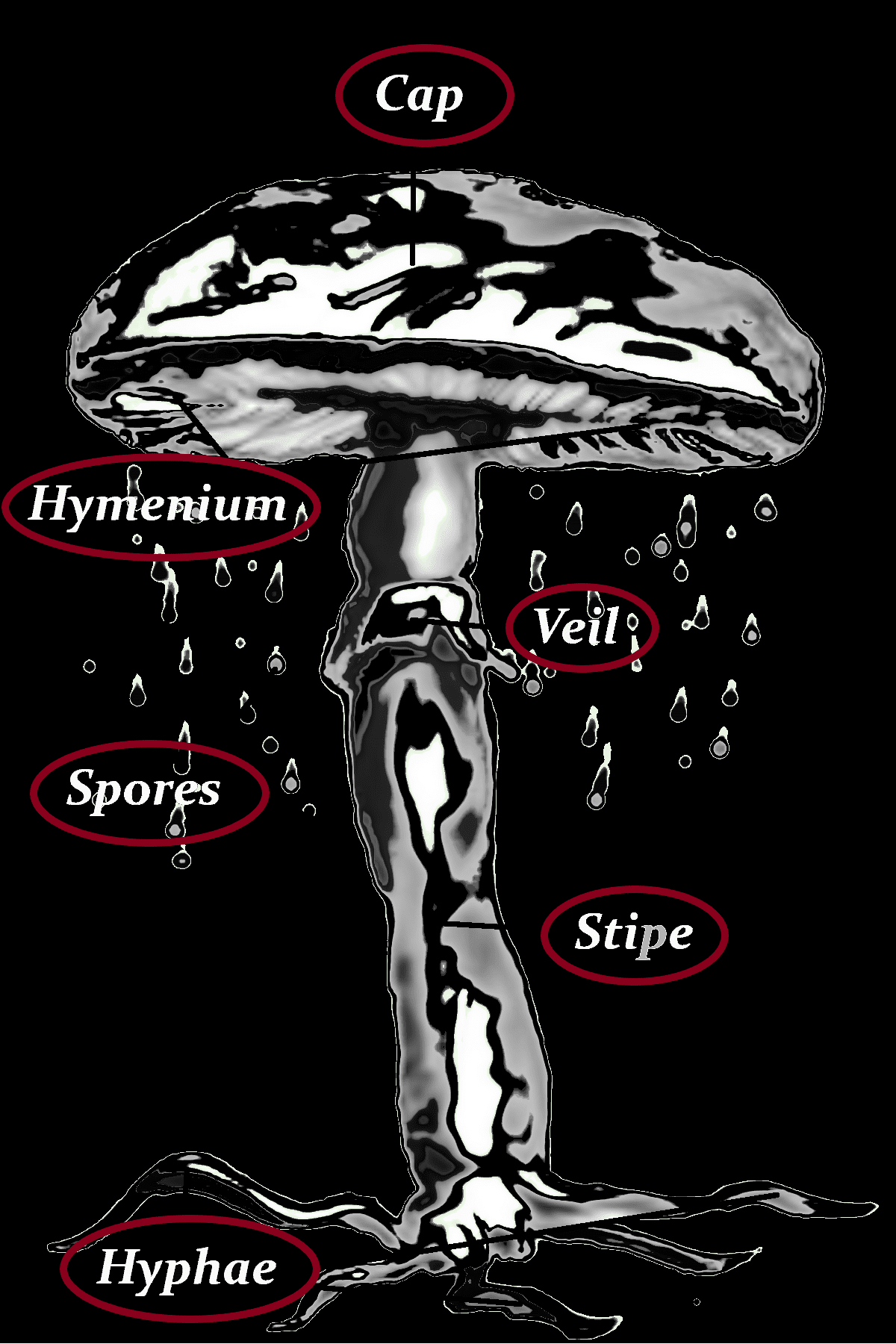
Cap
1-4 (5) cm Ø
-ocher-yellow, reddish brown to orange-yellow
-center more orange and humped
Stipe
-whitish with ochre yellow, reddish brown to orange yellow grain
-furrowed
-base more orange brown
Veil
-dark brown
-droopinggrooved
Hyphae
Hymenium
-yellowish brown to dark yellowish brown
-bulging attached, almost free-appearing
-with intermediate lamellae
-somewhat mottled by spore powder
Spores
11.5-17 x 8-11 µm
-dark brown
-basidia 4-spored
Danger of confusion
PSILOCYBE ALLENII, PSILOCYBE SERBICA VAR. BOHEMICA, PANAEOLUS CYANESCENS, PSILOCYBE SEMILANCEATA, PROTOSTROPHARIA SEMIGLOBATA, PANAEOLUS PAPILIONACEUS, PANAEOLUS GUTTULATUS, PANAEOLUS FIMICOLA
3. Consuming
Dosis
There is an urgent warning against food experiments. Collecting, possessing and selling drug mushrooms is illegal in many countries around the world.
Depending on the particular strain, growth method, and age at harvest, psilocybe mushrooms can come in rather different potencies. It is recommended to weigh the actual mushrooms, better then counting them. 10% of the mushrooms mass is left, when dried. Take a look at Properties, to find out how potent they are.
Dose:
At least one gram of dried cubensis mushrooms is taken orally for modest psychedelic effects.
-0.25-1 gram is usually enough to produce a mild effect
-1-2.5 grams usually provides a moderate effect
-2.5 grams and more usually produce strong effects
For most people 3,5g, dry would be considered a high dose and likely to produce a very intense experience. Also, the experience with mushrooms quickly becomes overwhelming. In some rare people, doses as small as 0.25 grams can produce the full effects normally associated with very large doses.
Effect
Psilocybe cubensishas a very strong hallucinogenic effect. Its a potent type of mushroom that contains high doses of the well-known hallucinogenic – mushrooms psilocybin, psilocin, and also baeocystin.
Effects usually begin after about 20 to 60 minutes, depending on the method of ingestion and what else is in the stomach. Hallucinatory effects often occur, such as walls that seem to breathe, vivid color enhancement, and the animation of organic shapes. At higher doses, the experiences tend to be less social and more entheogenic, often intense and spiritual in nature.
Duration:
Due to the main ingredient, psilocybin, it can be expected to have the same duration of action as the other more well-known hallucinogenic mushrooms. The duration of the effect is about 5-6 hours.
Smell
Musty
Taste
-unpleasant
Flesh
-whitish to light brown
Composition
The content of alkaloids is 1% psilocybin and psilocin/g dried Psilocybe cubensis mass. However, the mushroom contains the hallucinogenic tryptamines psilocybin, psilocin, and also baeocystin. Mycelium contains less psilocybin than fruiting bodies.
Its psychoactive compounds:
-Psilocybin (4-phosphoryloxy-N,N-dimethyltryptamine)
-Psilocin (4-hydroxy-N,N-dimethyltryptamine)
-Baeocystin (4-phosphoryloxy-N-methyltryptamine)
-Norbeocystin (4-phosphoryloxytryptamine)
Psilocin and psilocybin are isolated substances Albert Hofmann, 1958, in the related species P. mexicana
4. Data
other names
Kubanischer Kahlkopf, San Isidro, magic mushroom, Palenque mushroom, Hed keequai, The King, Stropharia cyanescens Murr., Stropharia caerulescens (Pat.) Sing., Naematoloma caerulescens Pat., Hypholoma caerulescens (Pat.) Sacc. & Trott., Cubensis, Stropharia c. Earle, Hongo de San Isidra (im mexik. Teilstaat Oaxaca), Di-shi-tjo-le-rra-ja (mazatek. “Göttlicher Dungpilz”), San Isidro, gold top (Australien), teonanacatl (aztek.), San Isidor (span.), San Isidro Labrador (span.), honguillos de San Isidro Labrador (span., “Pilze des heiligen Isidro Labrador” – der heilige der Landwirtschaft), derrumbe del estiercol de vaca (span., “Abgrund der Kuhfladen”), nocuana-be-neeche (zapotek.), nti-si-tjole-ncha-ja (mazatek., “Pilz wie der, der auf Kuhfladen wächst”), teotlaquilnanacatl (Modernes Nahuatl, “der heilige Pilz, der in Farben malt”), tenkech (Chol [Palencano]), lol lu’um, (yukatek. Maya, “Blüten der Erde”)
| Kingdom | Fungi |
|---|
| Division | Basidiomycota |
| Class | Agaricomycetes |
| Order | Agaricales |
| Family | Hymenogastraceae |
| Genus | Psilocybe |
| Species | P. cubensis |
| Ecology | saprotrophic |



